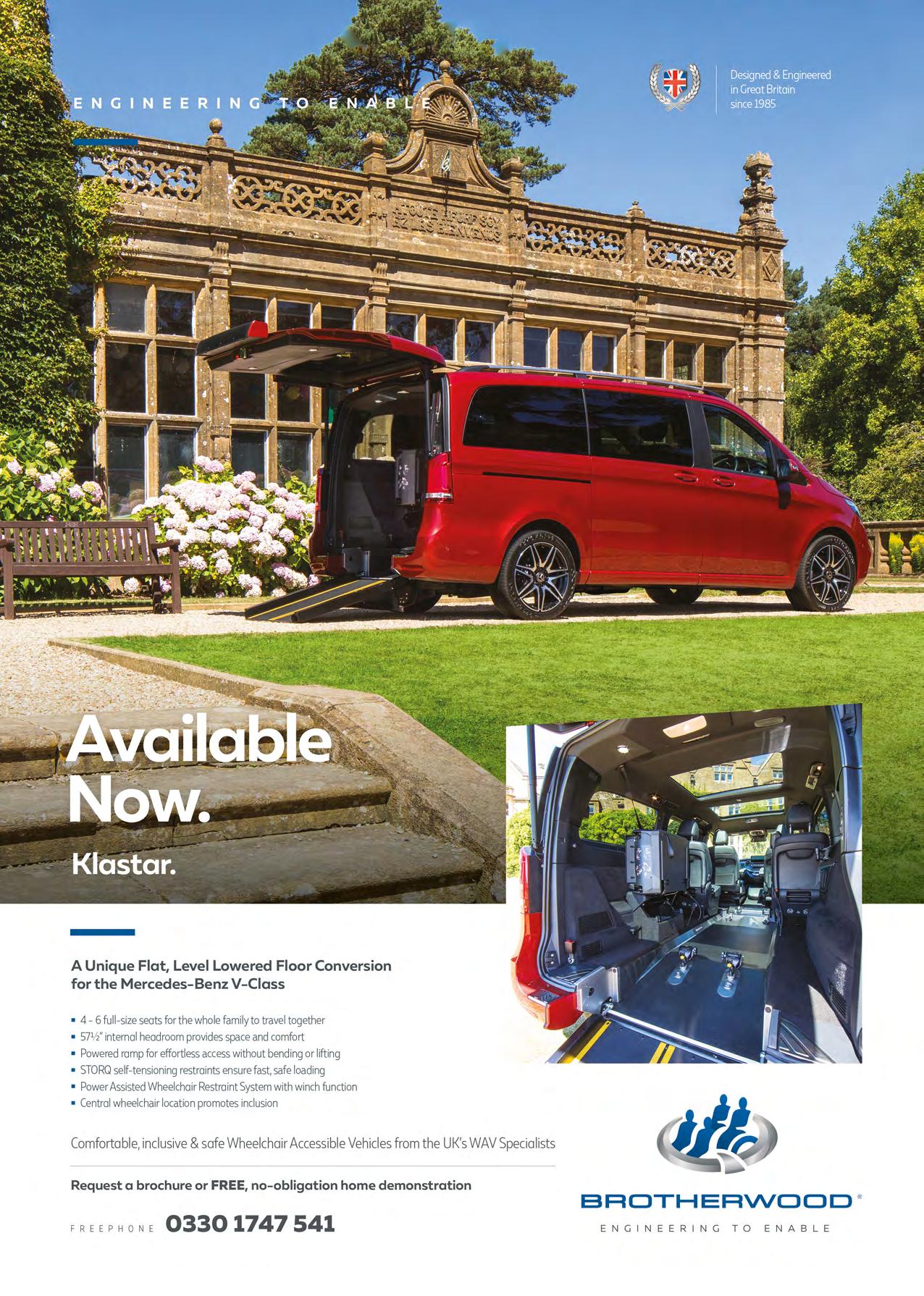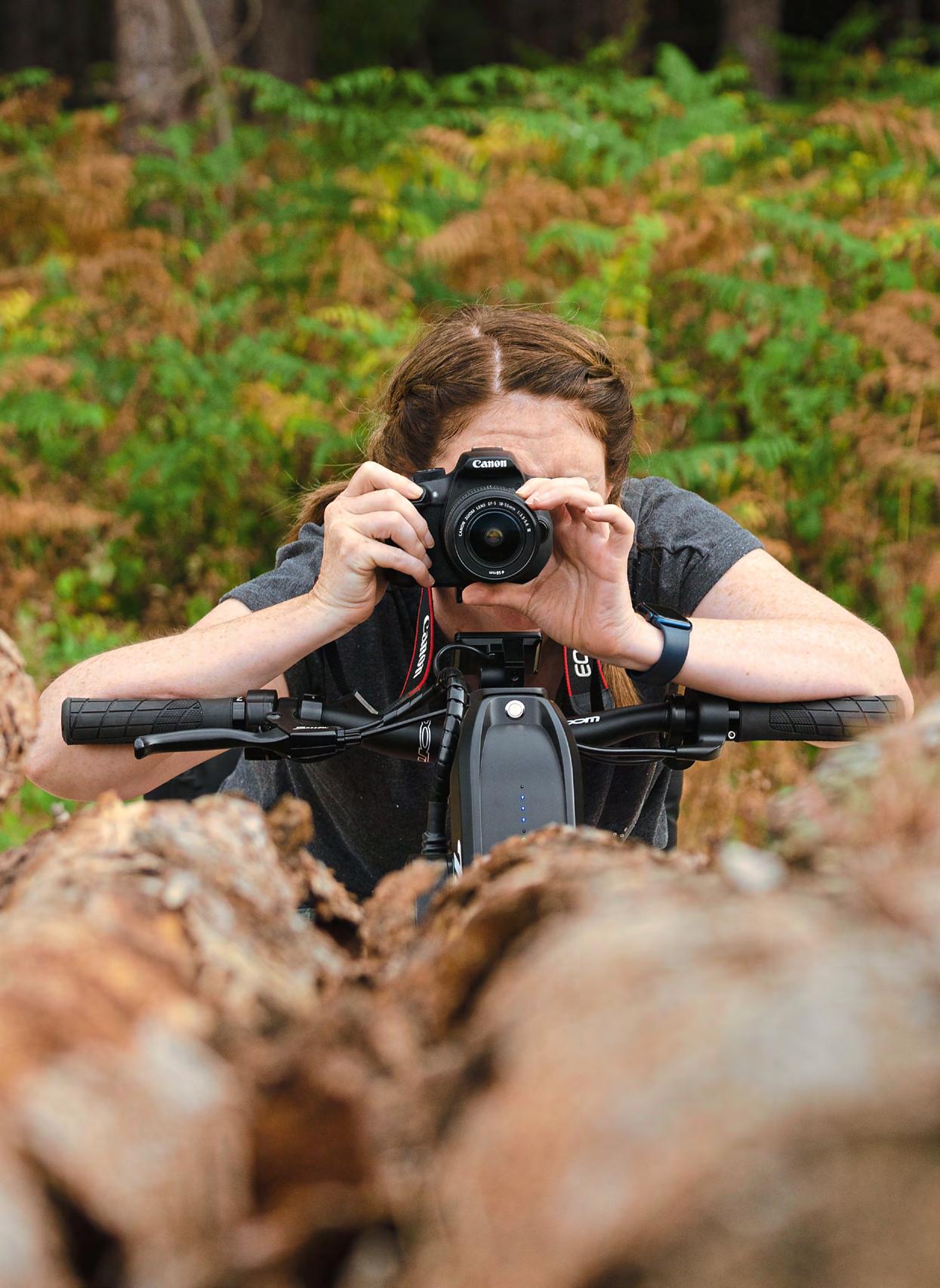
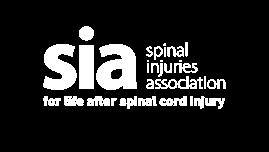







The past few months have been emotional for all of us at SIA following the passing of our founder and president Baroness Masham of Ilton in March. She was a true titan of tenacity, with an unwavering dedication and commitment to bettering the lives of spinal cord injured people. You can read more about her life and the remarkable legacy she leaves behind on pages 4 and 5
Almost 50 years on from when she founded SIA, Baroness Masham’s vision for an organisation that truly represents and speaks for spinal cord injured people continues to run through the fabric of our work to this day. As someone who has been associated with SIA since 1989, I certainly know this to be true. As a newly injured young man who was continually told about the things I could no longer do, I found in SIA an organisation that told me, “Yes, you can.” An organisation that truly spoke for me.
Earlier this year, I was privileged to attend a couple of SIA’s staff
development days where I saw how the organisation ensures it continues to represent SCI people. With such a range of skillsets coming together – from our support network colleagues to our fundraisers and from our specialist nurses to our campaigns team – we are given an opportunity to share knowledge and learn from and about each other’s work. This means that, collectively, we are fully poised and ready to serve our members in the best possible way. And to ensure we’re the ones saying, “Yes you can” and what’s more, “Here’s how.”
Throughout our summer issue of Forward magazine you will see evidence of this work in motion. On page 51, you can learn more about our support network team and the people they help every day. Here Louise Aveyard, who supports her brother Chris with his SCI, sums up our community groups perfectly when she says: “Being able to sit next to someone who is going through what you are going through is invaluable.”
Find out more about how our work aims to build knowledge and educate healthcare professionals through our no-holds-barred bowel care campaign ‘This is Serious Sh1t’, on page 48.
And learn how SIA’s specialist nursing knowledge has assisted in the creation of a landmark NHS pathway to better diagnose and treat cauda equina syndrome (CES) on page 10 and, furthermore, how those with CES will be signposted to and can benefit from our services.
Underpinning all this work is, of course, our new strategy, which has now launched, and will ensure SIA continues to develop and grow in line with Baroness Masham’s vision of an organisation that truly represents and speaks for all of us with spinal cord injuries. One that continues to say, “Yes, you can.”
f.hussain@spinal.co.uk

As a newly injured young man who was continually told about the things I could no longer do, I found in SIA an organisation that told me, “Yes, you can.”
Our founder and life-long president Baroness Masham passed away peacefully at Northallerton Hospital on Sunday, 12 March.
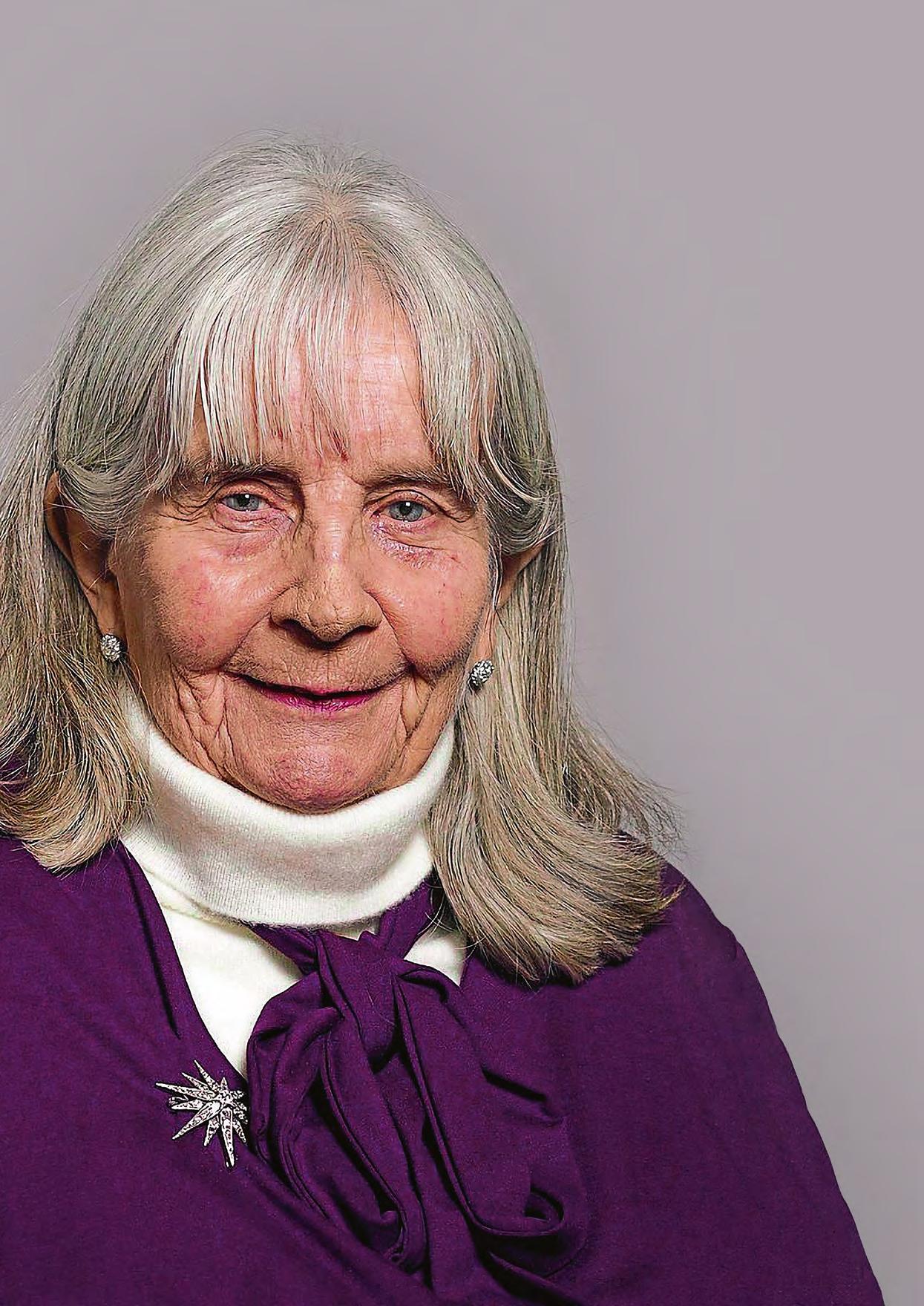
A trail-blazing champion of disability rights, she had, among many personal attributes, the gift of communication. She was a brilliant listener, was able to initiate meaningful conversations, and had an uncanny ability to recall names and make introductions confidently, ensuring those around her became connected. That skill at forging connections, combined with a singular, determined devotion to making a difference to the lives of spinal cord injured people, was instrumental in her founding Spinal Injuries Association (SIA) in 1974.
Born Susan Lilian Primrose Sinclair in Caithness, Scotland in 1935, she moved to England for school and went on to make the country her home.
A keen sportswoman, she was 23 years old when she was paralysed from the chest down during a horse riding accident in the 1950s.
Her rehabilitation took place at Stoke Mandeville, where she met her life-long friend Sir Ludwig Guttmann, the founder of the Paralympic movement. She would go on to become a 10-time Paralympic medal winner, securing her first gold in swimming at the inaugural Games in Rome, Italy in 1960. Subsequently, she went on to win medals in swimming and table tennis during the 1964 and 1968 Games.
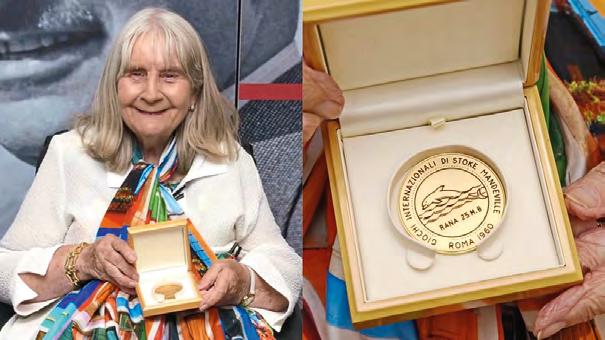
Before then, in 1959, she married her beloved husband David CunliffeLister, Lord Masham, and became Lady Masham. Their wedding was attended by her good friend and former SIA vice president, Lady Gillian Howard de Walden, who recalls a beautiful day and a radiant bride in a magnificent dress.
“She had a husband she adored,” remembers Lady Gillian, “They were so well suited, and both had lots of energy!”
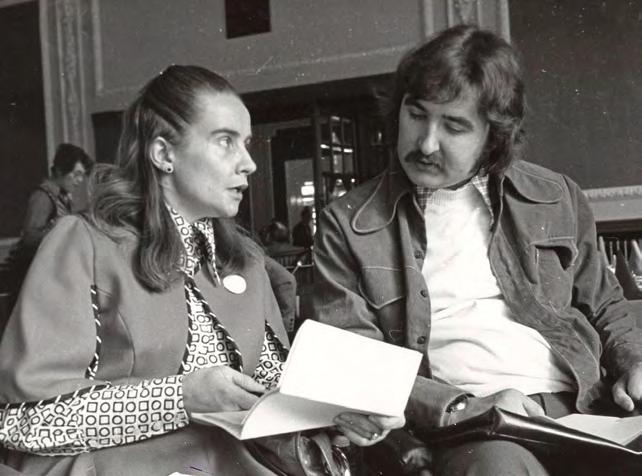
The couple went on to adopt two children, John and Clare, and lived in Masham, Yorkshire, where Baroness Masham enjoyed keeping Highland ponies and her muchloved Dachshund dogs.
In 1970 she became Baroness Masham of Ilton after being appointed a life peer in the House of Lords. She would go on to become the longestserving female peer ever, with 53 years of service.
injured people after rehabilitation that laid the foundation for a lifetime founding, developing and then being the voice of SIA. For over 49 years, Baroness Masham served the spinal cord injured community, networking and cajoling people and organisations to take up the cause.
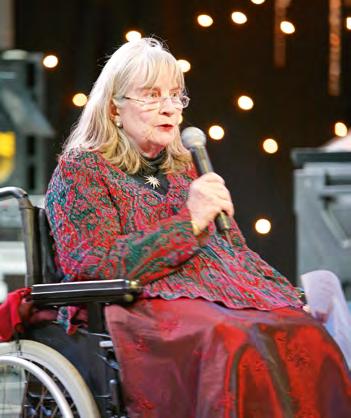
Lady Gillian recalls Baroness Masham bringing her and her late husband, Lord Howard de Walden, into the SIA family. She says: “It came as no surprise to me that she founded the Association –it was just part of her character; she was so driven, active and quick. It was such a great achievement on her part. She was the sort of person who would talk to whoever she came across and had a gift of bringing things out in people – she really wanted to know what problems people were encountering and to help. She never hesitated to ask the awkward questions – she liked to get straight to the point.
“She was a very bright person in all our lives. I’m pleased she was able to see just how far the Association had come in recent years, and the difference it has made in so many people’s lives.”
Baroness Masham’s vision for an organisation that truly represents and speaks for spinal cord injured people runs through the fabric of our work at SIA to this day, guiding us to champion, fight for and support the community we serve. Her legacy – to help spinal cord injured people achieve their own goals and to choose and realise their own ways of living – remains our guiding force as an organisation.
Lady Gillian Howard de Walden
Having this platform enabled her to raise the voices of disabled people and to throw a spotlight on the issues affecting the day-to-day lives of people and families living with spinal cord injury.
Crucially, it was discovering how little support there was for spinal cord
Our CEO Nik Hartley said: “Sue Masham has helped tens of thousands of people by founding and developing this charity nearly 50 years ago, to fight for and support spinal cord injured people. She was, and remained until the very end, a life force, a maverick even, but always an enthusiast for the cause to which she was devoted. Everyone here at SIA is devastated to have lost our greatest advocate and we offer our deepest condolences to her family at this sad time.”
She was a very bright person in all our lives. I’m pleased she was able to see just how far SIA had come in recent years
‘But you don’t look disabled?...’ what if your spinal cord injury is a hidden one?
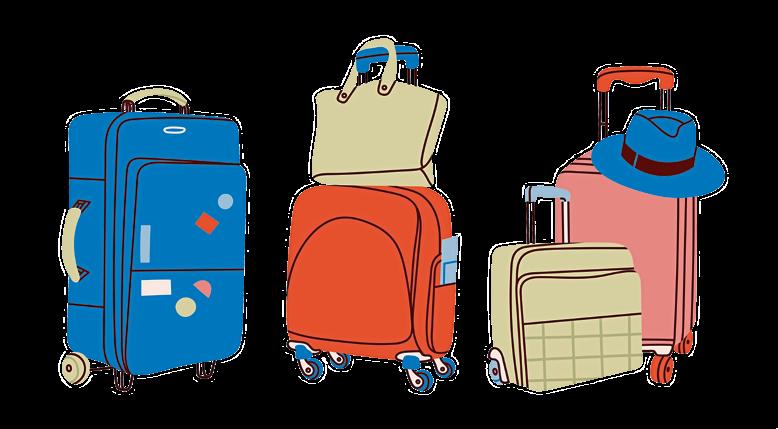
27 Dad’s the word – we catch up with SIA trustee and new father Chris Keogh

28 En garde! Wheelchair fencer Vivien Mills shares how the sport restored her self-esteem
Taking on the world –Darren Edwards tackles seven marathons in seven days on seven continents!
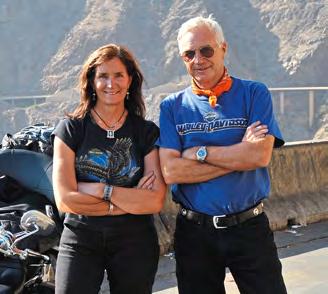
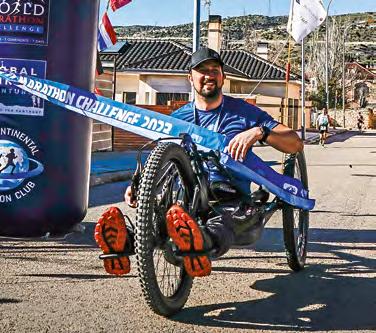
38
Summer cooking with the 2 SCI chefs

30 Hobbies – finding your post-injury passion
DAILY LIVING
40 Mental health columnist Ruth F Hunt
42 Comedy – So there I was
ON THE COVER
ON THE COVER
Here’s looking at you! Clair Brady’s injury didn’t get in the way of her love for photography.
XX Article title
This swathe of dummy text is helpfully written to be inserted for.
COVER IMAGE @ LUKE GARWOOD
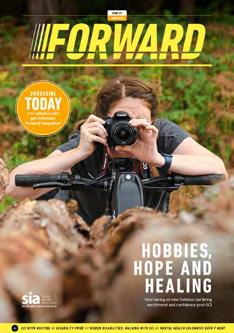
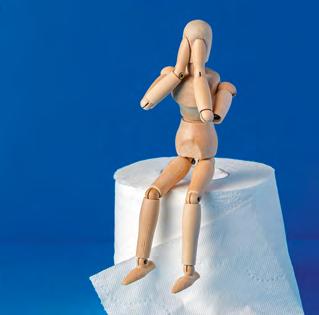
“This swathe of dummy text is helpfully written to be inserted for general visual purposes and to facilitate.”
Happy summer everyone! You asked for articles featuring SCI people who can walk – we hope you find our coverage in this issue useful. And be sure to check out the piece from our new columnist on mental health and incomplete injuries. Let us know what you think.
READ MARK RICHARDSON’S REPORT ON PXX
From Sally and Emma.
34
Disability Pride – A look back at how the world was changed
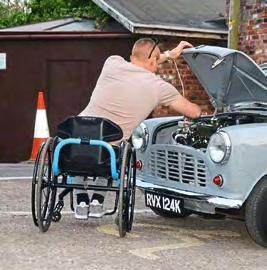
46

Westminster reception with our Royal Patron HRH The Princess Royal
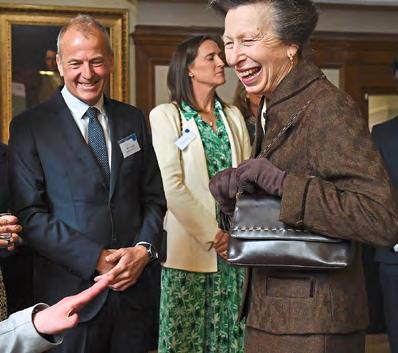
SIA NEWS
44 Welcome from our CEO Nik Hartley
47 News in brief
51 Meet SIA’s support network team

54 Campaigns round-up
48
#Serioussh1t –our campaign to improve bowel care
SUBSCRIBE TODAY Visit spinal.co.uk/getinformed/forward-magazine/


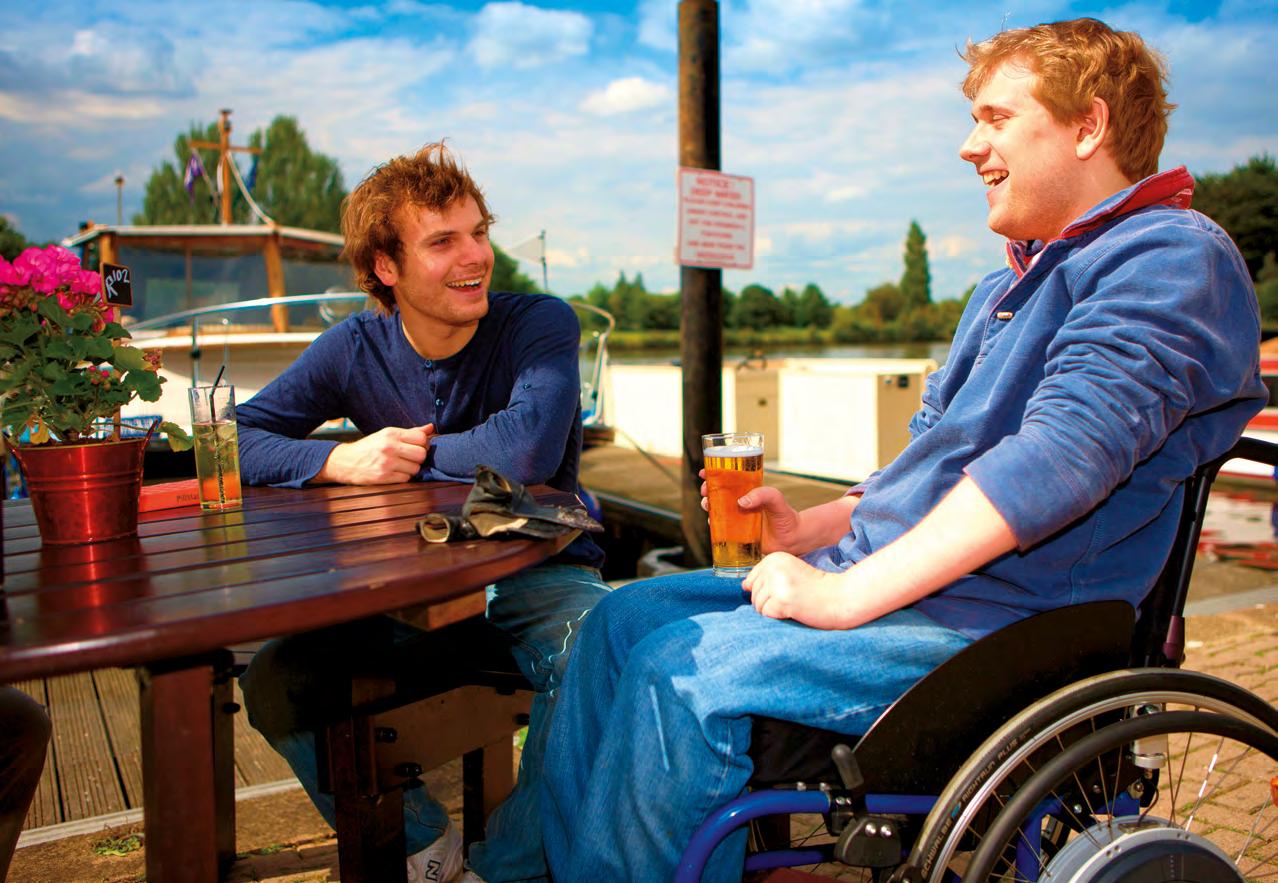

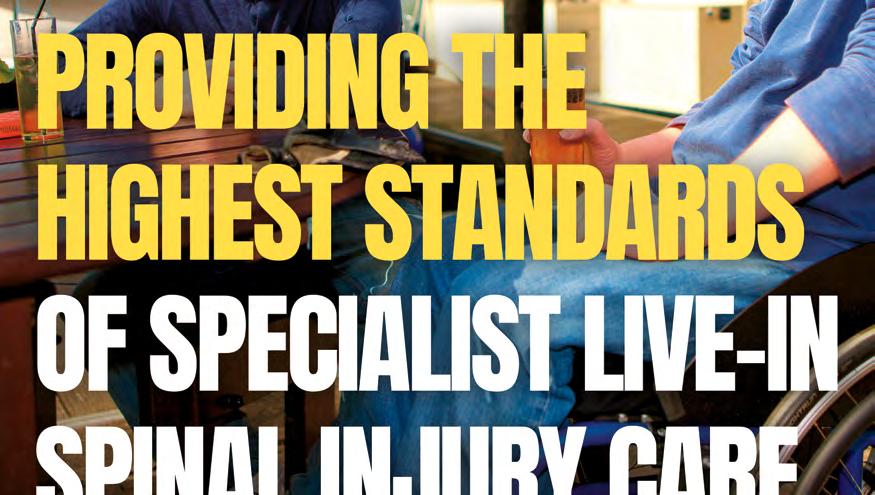




 d.smith@spinal.co.uk
d.smith@spinal.co.uk
Cauda equina syndrome (CES) is a condition not commonly understood and subsequently, not always diagnosed in a timely fashion.
At SIA, we hear of individual cases where there may have been a delay in diagnosis, or no diagnosis at all. Only too often the patient’s symptoms can be dismissed as having back pain or sciatica. Without the essential timely assessment, diagnosis, investigation and treatment, the patient’s risk of permanent nerve damage is increased. This can often lead to litigation against the NHS.
Litigation was a key driver in developing a robust pathway to try to ensure there is much better awareness at the onset of CES symptoms, through to timely investigations and treatments and postdischarge support for the rest of the person’s life. That would lead to much better outcomes for the patient, but also the NHS.
Without a pathway, there is no clear route or guidance for people with CES or suspected CES to seek advice and support.
In January 2022, I was asked to represent SIA as a stakeholder to participate in the development of a suspected CES pathway. This was led by Getting it Right First Time (GIRFT).
The pathway is a great opportunity to increase awareness of CES from the initial GP assessments and will give clinicians a clear framework to ensure suspected CES is diagnosed and managed effectively
GIRFT is a national programme designed to improve the treatment and care of patients through in-depth reviews of services, benchmarking, and presenting a data-driven evidence base to support change. The programme undertakes clinically led reviews of specialities, combining wide-ranging data analysis with the input and professional knowledge of senior clinicians, to examine how things are currently being done and how they could be improved.
GIRFT is part of an aligned set of programmes within NHS England and has the backing of the Royal Colleges and professional associations.
In January 2021, SIA merged with CES UK and its 1,200 members.
As SIA’s representative, it was vital to share the services we offer and the existing support to those with CES, and to advocate for them. We are fortunate to have a wealth of knowledge and experience to be able to offer people with CES the support and advice they need. This was recognised by GIRFT and other stakeholders. The third sector plays a vital role alongside the NHS.
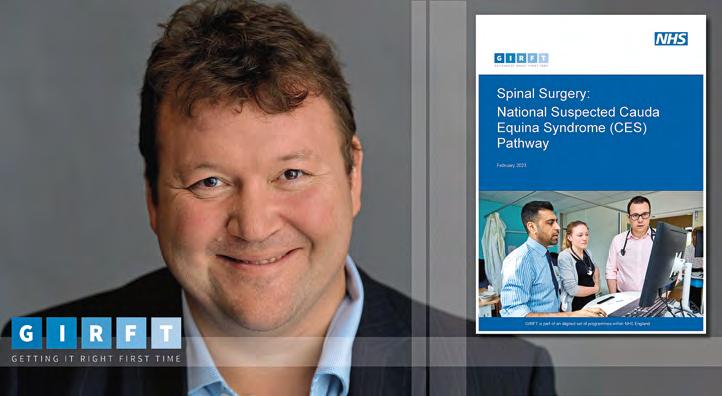
Fast forward to February this year, and the launch of the finalised pathway and supporting guidance. The pathway is a great opportunity to increase awareness of CES from the initial GP assessments, through to an A&E admission, treatment and beyond discharge. It will give clinicians a clear framework to ensure suspected CES is diagnosed and managed effectively.
All patients undergoing surgical intervention for CES that have ongoing symptoms post-operatively should be referred to a regional spinal cord injury unit through the National Spinal Cord Injury Database. At the same time, they should also be signposted to patient support groups, including SIA.
We at SIA are then able to offer psychological support, as well as offering advice about the physical impact of CES, which includes bladder, bowel and sexual dysfunction, and mobility and pain management. Those patients can then have access to SIA’s full services and support. This really is a historic moment
and one that should benefit many people with suspected CES and those who currently live with its impact.
This isn’t the end of the journey, but a giant leap towards better care and a support network offering much easier access to services that understand the significant impact of this condition.
Lydia Audus-Wright, of Denbighshire, North Wales, spent months trying to get help, but her CES symptoms were missed. Here she shares her story...
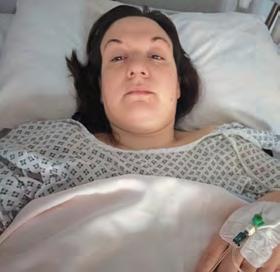
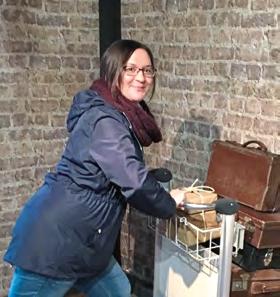
“I woke up one day in June 2022 in terrible pain – down my left leg and in my back. I brushed it off thinking I’d slept on it funny, but after a week, the pain wasn’t easing. I couldn’t get a GP appointment, but the health care practitioner prescribed naproxen for sciatica, saying if it got any worse, to go straight to the GP.
“For the next few months, the pain became unbearable. I stopped driving, couldn’t walk the short distance to do the school run and sleep was impossible.
“I tried to see the GP but couldn’t get face-to-face appointments. I kept being told it was only sciatica and I needed to learn to manage the pain better.
“Then things got so bad, I began falling at home. After another GP phone consultation on 26 January 2023, I was in tears, being told I wouldn’t be considered for an MRI as I hadn’t been in an
accident or suffered trauma, and that surgery wouldn’t be an option because at 34, I was too young. I was advised to manage the pain better and my prescription was increased. I felt completely dismissed and at a total loss as to what to do.
“Two days later, my friend took me to A&E. By now I’d developed a complete loss of feeling in the saddle/groin area. My friend was worried it was cauda equina syndrome (CES). We were assured it wasn’t but that I’d be referred for an MRI and that this wasn’t urgent, so I was sent home.
“Just three days later I woke up incontinent. I went back to A&E where I underwent an urgent MRI which confirmed CES. I was told if they did not operate within the next 24 hours, I’d be paralysed from the waist down.
“I was transferred by ambulance and had
surgery to remove my left L4/5 discs. The surgeon explained that from the MRI they could see I’d had the condition for some time, but it had gone undiagnosed.
“After nine days, I finally returned home with nerve damage. It’s still early days. I cannot walk unaided and continue to have no feeling in my leg or groin. Daily tasks are a struggle, and the nerve damage has also affected my bowel and bladder, so I have to self-catheterise.
“The worst part is I feel like my voice was completely ignored by health professionals. It’s hard coming to terms with what has happened and this new way of life. I wish I had been listened to sooner so this ordeal could have been prevented, but I’m grateful to still have feeling and use of one of my legs.
“I don’t know what the future will hold. I’m learning to take each day as it comes.”

You can’t work with a spinal cord injury.
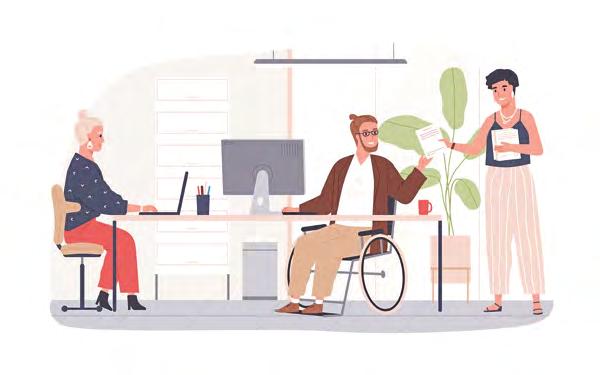
This is consistently one of the first concerns that people express to me when I meet them. Whether it’s to support our families or because it often makes up a core part of our personal identity, our ability to work is a vital component to a fulfilling life. All too often we can be guilty of thinking that a SCI is a barrier to working life. This is simply not true. No matter your background or skillset, your experiences as someone living with a SCI means you have a voice that is extremely sought after by employers. Furthermore, there is a myriad of different tools, services and charities out there to help you along the way; from Dragon Naturally Speaking, Access to Work and charities like Sense and Scope. There are people out there who can help with everything from making using a computer more accessible, to finding a position that suits you. Don’t give up on your career just yet.
You can’t have sex when you’re SCI.
Maintaining and making new relationships is such a fundamental part of living a fulfilled life. A partial or complete loss of sensation can often lead people to incorrectly believe that sex is off the table. The loss of that aspect of intimacy can be hugely damaging, not only to a relationship but to our self-confidence as well. It simply doesn’t need to be that way. Whether you need that little blue pill or any other of the numerous different available aids (see more on our website), there are ways and means of making things happen. Will it always be straightforward? No. Will you need to experiment a bit? Most likely. But who doesn’t love experimenting in the bedroom?

There are many myths surrounding spinal cord injury. Jack Mannings, a C5 tetraplegic, has seen, heard and lived them all, both in his role as an SIA support coordinator and during his own SCI journey following his accident in 2015. Here, Jack busts some of the most common myths

You can’t drive with a spinal cord injury.
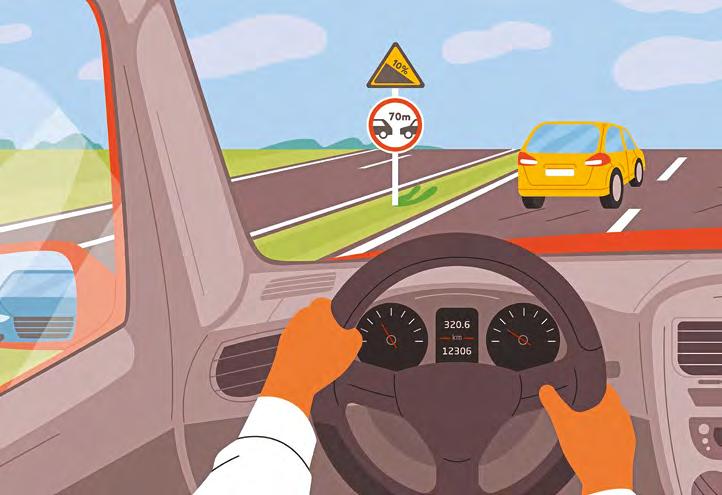
Quality of life after a SCI is profoundly affected by our sense of independence. With the way that public transport all too often is, our ability to drive becomes vital to maintaining the freedom and independence we all want and need. There are so many different ingenious ways that driving controls have been adapted that almost anyone can do it, yes, that includes you, my fellow tetras! I encourage anyone reading this to, at the very least, book an appointment at your nearest assessment centre or driving rehabilitation specialist to see the different types of adaptations that might work for you. With the Motability Scheme making it easier and cheaper to lease a specially adapted wheelchair, why not give it a go?
It’s
You have to be careful what you say.

This one is directed more at the friends and family of someone who has sustained a SCI but is just as crucial as anything else on this list. All too often we can be afraid to say the wrong thing. We don’t want to offend anyone; let alone those we love. The result of this fear is that we become too “careful” with what we say. The feeling that your family and friends are treading on eggshells around you is always going to feel more alienating than someone using “incorrect” language. Ultimately, we’re still the same person. We all just want to be treated that way –joking and teasing included.
The last myth that needs busting is that a SCI makes travelling or flying abroad incredibly difficult. It can be quite daunting, travelling, not knowing what the process is for flying or using trains. Indeed, it can be frustrating or stressful if you’re underprepared for a trip. But if you’re organised and prepared well ahead of time, it’s really a breeze. Make sure you are aware of your travel providers’ procedures ahead of your journey, arrive with enough time to spare and the world’s your oyster. If you’re really nervous, there are some great companies out there, such as Wheel The World, that focus specifically on travelling in a wheelchair. (Pro tip: if you’re flying, find out where the aisle chair is kept and leave plenty of time to transfer).
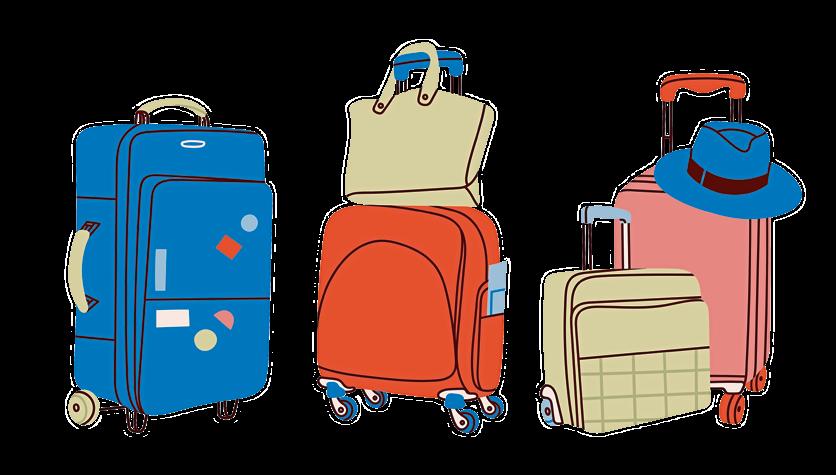
difficult to travel or fly when spinal cord injured.

These are challenging times for those who provide care for their disabled partner, not least because the current economic climate has led to a reduction in the number of paid care hours provided.
SCI people are often having to rely on partners to fill the gaps in their paid care provision. But this dual role of carer and partner can be challenging and have longterm effects on the carer’s physical and psychological wellbeing, particularly when the role is taken on later in life.
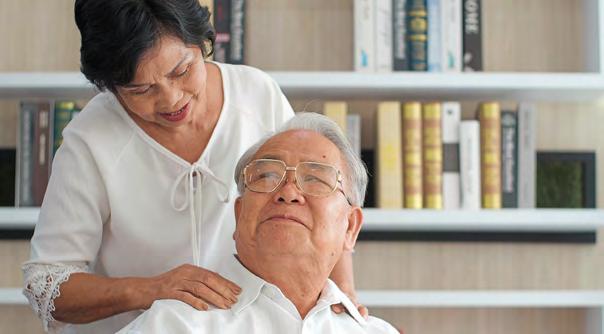
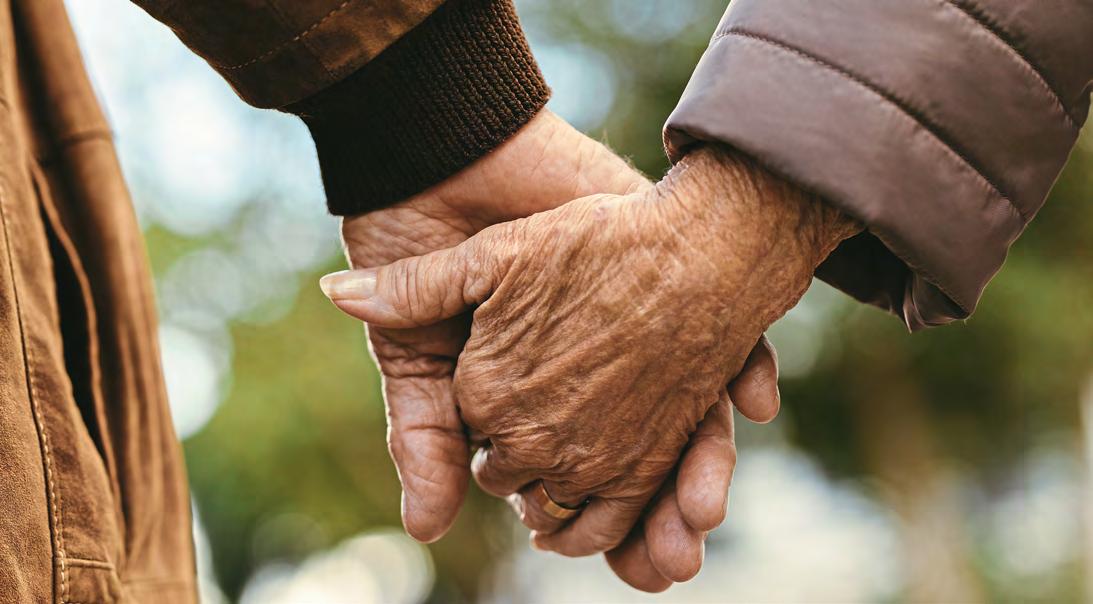
With more and more partners becoming carers as they age, it’s important to acknowledge the effects this shift in role can have for the unpaid carer but also to find ways for both parties to have equality in the relationship.
60% 60%
of carers report a longterm health condition or disability (Carers UK analysis of GP Patient Survey 2021)
29% 29%
of carers feel lonely often or always (Carers UK, State of Caring 2022)
10.6m 10.6m
the estimated number of unpaid carers (Carers UK, Carers Week 2022 research report)
JOY SINCLAIRBeing an unpaid carer for a loved one can be hard – physically, financially and mentally – particularly as you get older. Our expert on ageing, Joy Sinclair, offers advice on how to look after yourself
The main physical effects of long-term caring are musculoskeletal, eg, back pain and general aches and pains, which can lead to fatigue. Headaches, insomnia, and loss of appetite may also affect you. Getting plenty of exercise and sleep as well as eating and drinking well will all help keep you as healthy as possible to avoid some of these long-term issues. Self-care as you age is equally as important as the care you provide for your partner.
Feelings of anxiety, irritability, depression or resentment can arise at times. These things can have a physical knock-on effect in the form
of fatigue. It is vital to try to keep a sense of your own identity but also the identity of your relationship. Rather than referring to yourself as your partner’s carer, continue to refer to yourself as their partner, husband or wife.
Possibly the greatest social impact is isolation, particularly if this change happens later in life for you. You may have given up your job to care for a loved one and miss the sense of individuality. With advancing years, our relationships change and we can find ourselves having to make unplanned adjustments. It is important to stay in touch with family, friends and old colleagues to help avoid isolation and loneliness.
Support is out there in the form of helplines, associations, friends, family and online forum groups. Knowing when to ask for help will avoid unnecessary stress to yourself and your partner, and the risk of standards of care being compromised.
The main support agencies for carers in the UK are:
Carers UK – carersuk.org Tel: 0808 808 7777

It is worthwhile setting some priorities and goals. Think about what small adjustments you can make to your daily routines, taking both your own and your partner’s changing needs into consideration.
• Holidays can become more difficult, due to both your partner’s and your own physical limitations. Taking shorter breaks may be advisable.
• Remember to make time to have conversations with your partner that

aren’t about their care. Can you share a hobby or a TV programme you both like? It’s important for you both to try to keep the relationship from becoming just about caring.

• Make time for yourself and for keeping your own identity. Set aside a few hours each week and plan to spend them with family or friends, going shopping or to the cinema, for example.
• If the equipment you are using to assist your partner is no longer fit for purpose, it could make you more susceptible to back problems. Think about what could help – could you start using a hoist to assist with transferring, for example? Some equipment is bulky and can take up precious room in your home, but it is important to always try to reduce the risk of injury.
• If you need a complete break for a few days or longer, find out about respite care via adult social services.

Carers Trust – carers.org


To find your nearest Carers Trust network partner: tel: 0300 772 9600


Age UK – ageuk.org.uk Tel: 0800 055 6112
• Be aware of relevant healthcare professionals who can offer you appropriate support when necessary. Contact a spinal cord injury centre, or your GP surgery.
SIA – Spinal.co.uk
Coming to terms with her sudden, life-changing transverse myelitis (TM) diagnosis had a serious impact on Lydia Gilroy’s mental health. Here she shares how she began reclaiming herself again
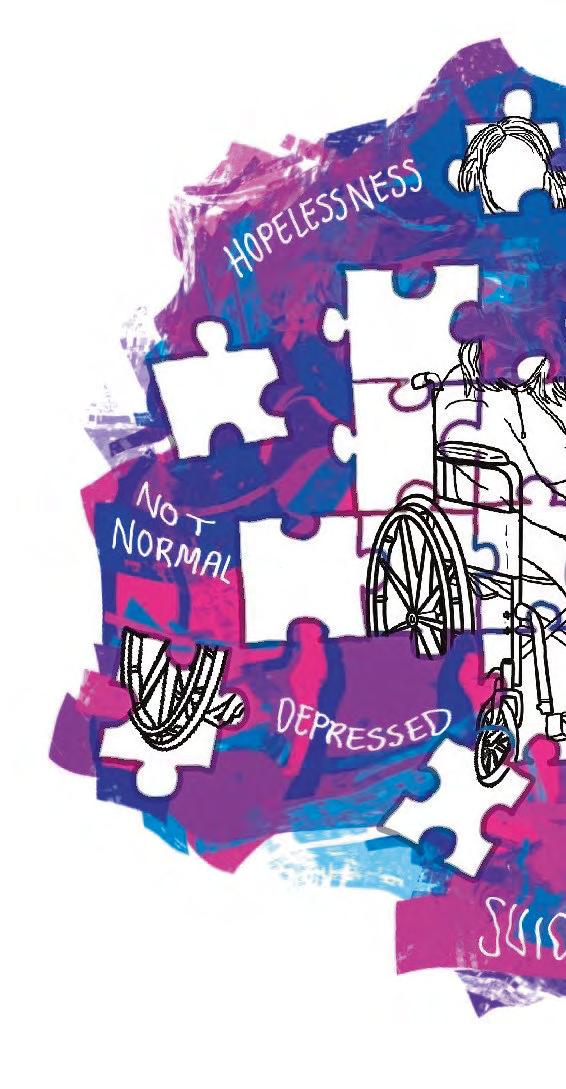
“In December 2021, I had just returned from university for Christmas and was looking forward to being home in Southampton. I began experiencing abnormal back pain between my shoulder blades, which I put down to Christmas shopping exertions earlier in the day, but soon the pain became
unbearable. I went to bed thinking ‘it will pass’, and though the pain did, it was replaced with a tingling in my arms and legs. I tried going to the toilet several times, but it felt like I was floating and about to lose balance. Then I discovered I had no support in my legs and fell to the floor. Soon afterwards I was in hospital and underwent dozens of tests. Transverse myelitis was diagnosed – it had occurred in my spine (C7). Suddenly, aged 19, I was an incomplete tetraplegic.
“I spent a few months there before then going on to the spinal unit in Salisbury for six months for rehabilitation.
I hadn’t been in hospital since I was born and it was hard relying on others to do everything for
me, such as feeding, due to loss of power in my hands.
“At the beginning, I coped with the sudden paralysis and life on standby by ignoring everything that was going on.
I’d try to rationalise it, wondering if what had happened was some kind of karma – had I been rude to someone, and this was payback?
I relied on my parents to pick up the pieces while I tried wishing it away, hoping I’d wake up and find I was my ‘normal’ self and back at university.

“My mental health took a huge plummet. Uncertainty as to why this had happened to me, with no explanation apart from it being an autoimmune response, plagued my mind continuously. I was desperate to get back to my life. I’d try to rationalise it, wondering if what had happened was some kind of karma –had I been rude to someone, and this was payback?
I remember saying ‘I didn’t do anything’ to myself a lot. I just wanted to die.
It’s Transverse Myelitis Awareness Day in June. Here we share the stories of two people whose lives were forever changed by this rare neurological condition
“Another prevalent thought was not feeling like myself. I felt I’d lost my identity – the things that defined me had been taken away. My place at university was postponed, I couldn’t see friends and wasn’t able to wear my own clothes. Because of weight gain caused by medication and lack of exercise, I thought I looked too gross to wear ‘pretty’ or feminine dresses. I’ve always struggled with my self-image, not liking the way I looked, and that sentiment was magnified. I just wanted to be myself again.
“More recently I have got better with my body and can look at myself again in the mirror.
“Over this year, I have improved a lot with physio, both in and out of hospital, which has improved my physical and mental health. I’ve gone from not being able to move my fingers, to now typing at normal speed for this article, and can move with more ease, bearing my weight on my right leg. I’m still aiming to get to a point where I can walk again.
“Although I am devastated by what has happened, I am grateful for where I am now with the help from everyone at Southampton, Salisbury and Hobbs Rehabilitation, funded by TM Challenge, as well as my amazing family for being there with me on this long journey to getting back to myself again, whatever that entails.”
Last year Daniel won the Outstanding Bravery Award in the Northern Children of Courage Awards, after being nominated by Melissa Scott (pictured) from Newcastle United Foundation
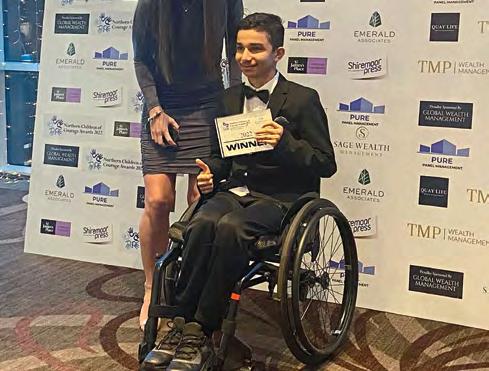
Daniel is 16 years old and a full-time wheelchair user after developing transverse myelitis in December 2020. As a young person, he shares his unique perspective on life with SCI
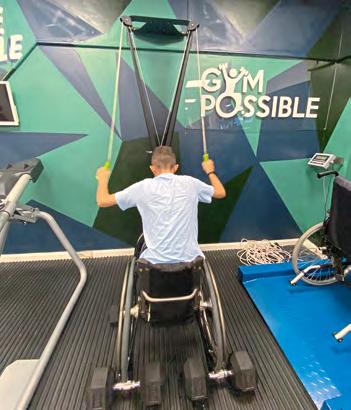
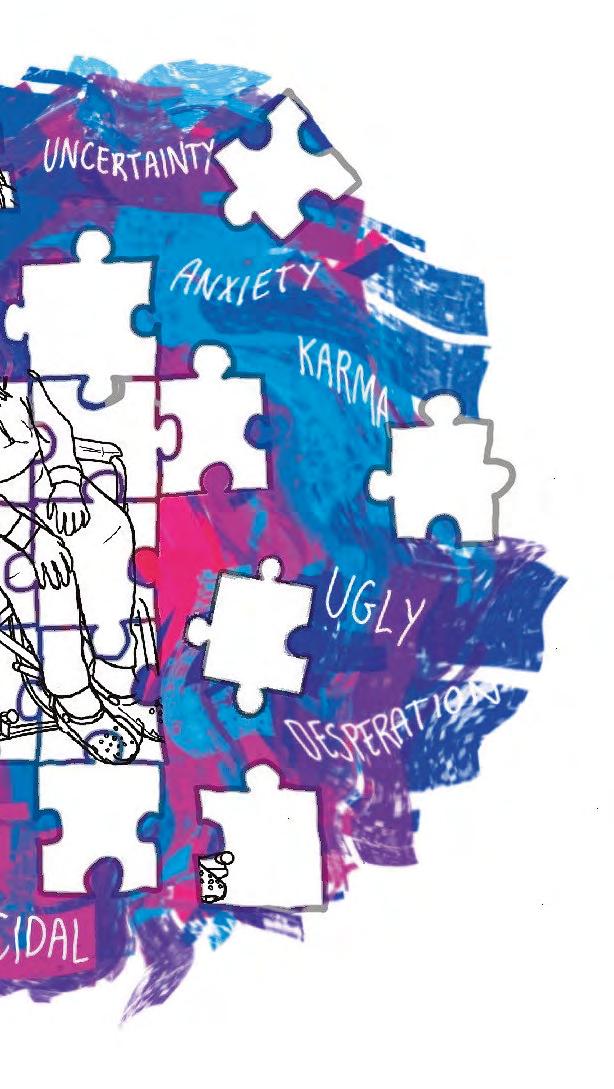
“I went from being healthy and fit to paralysed from the waist down before being diagnosed with TM. Following intensive treatment, I put all my energy into physiotherapy in hospital and was steadily making progress but then suffered a relapse that removed more of my sensation. I also lost my ability to speak for two weeks and couldn’t see for a few days.
“I was then diagnosed with relapsing TM. It was scary but I didn’t lose hope and continued with my rehabilitation, defying odds and taking steps using crutches. I promised I’d walk out of the ward. On Wednesday, 23 June 2021, I was discharged from hospital and did as promised!
Daniel

“I attended Stoke Mandeville for seven weeks of rehabilitation, I met other young people with different spinal injuries. After discharge I came home, but in August, my legs suddenly stopped working again. I have not walked since – but I never give up hope.
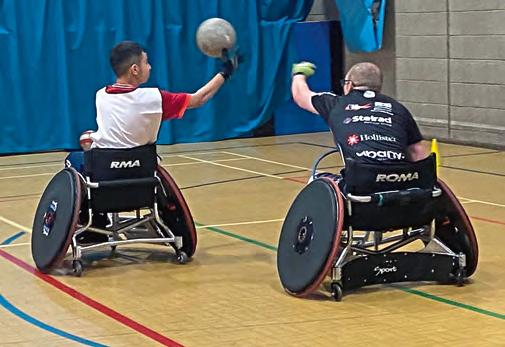
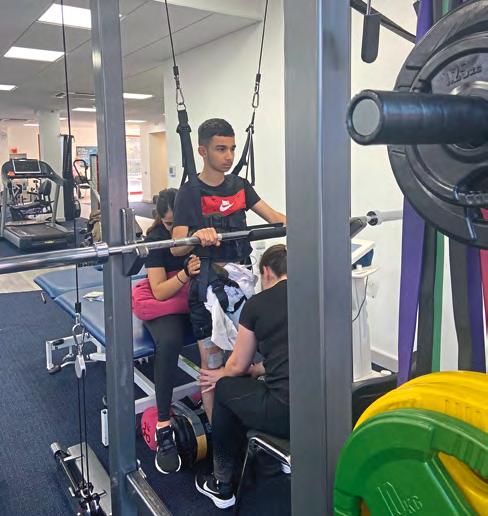
“I continue to do rehab regularly and with no specialist neurorehabilitation centres close to home in Newcastle-upon-Tyne, I go every half term to Neurokinex in Gatwick and have annual reviews at Stoke Mandeville.
“Life after injury has been challenging, particularly the lack of access in places and integration back to school, but these make me more determined and stronger. I was reluctant to go out as I didn’t want to be seen in a wheelchair. I also struggled with fatigue and hated being pushed. I had to miss a lot of school.
“In December 2021, I was hospitalised with Covid-19 while on holiday in the UAE. I was determined to return to health and normality. Afterwards, I took up wheelchair sports – rugby and wheelchair racing –and joined a new school. It was important I had a fresh start. Independence in school and at home is important to me.
“One of the hardest things is being denied experiences I once took for granted like going on trains or enjoying nature hikes. I remember going to London and discovering many underground stations were inaccessible to wheelchair users. I found bus drivers rude overall. We spent a lot more money because we had to rely on Ubers even for short distances.
“Two years on, I’m gradually adapting to my reality. I love music and hope to record an album, building on three songs I wrote in hospital and later recorded. I’m now focusing on my GCSEs this year. Despite many lows, there have been highlights, including wonderful people and organisations who’ve supported me unconditionally.
“My experience with TM has been tough but it’s made me who I am. I know a lot more about the world and am more compassionate and empathetic towards others.”
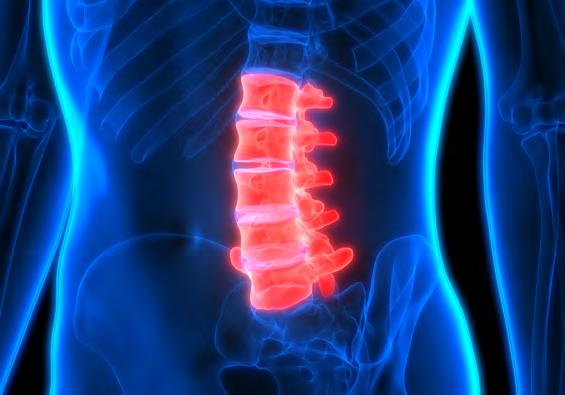
Transverse myelitis (TM) is a rare neurological condition involving inflammation of the spinal cord. Symptoms include abnormal sensations, pain radiating from the spine, bowel and bladder dysfunction and partial or total paralysis. Symptoms usually develop rapidly over a few hours or can develop gradually over several weeks. TM is not common – it is estimated that there are no more than 300 new cases a year in the UK. The rarity of the disorder, together with the variable presentation of symptoms, can complicate its diagnosis. Patient history, physical examination, MRI, lumbar puncture and blood tests are all relied on for diagnosis. About a third of patients will recover with little or no consequence, another third are left moderately disabled and the rest are left severely disabled.
FURTHER INFORMATION myelitis.org.uk

HIDDEN DISABILITIES: WALKING WITH SCI P20
Seven marathons in seven days across seven continents
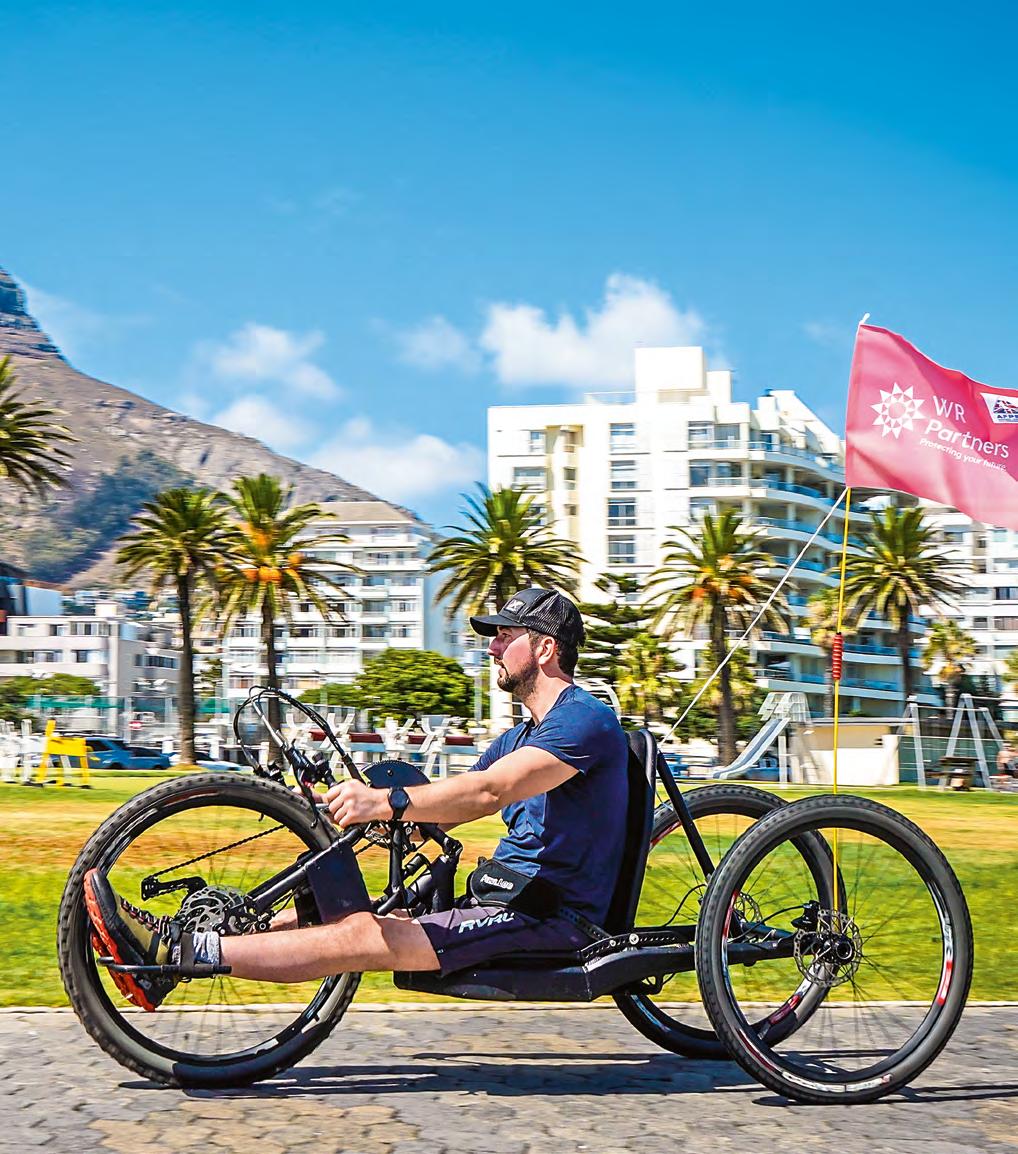
READ THE FULL STORY ON P24
ALSO INSIDE THIS SECTION
FATHER’S DAY P27 ||| WHEELCHAIR FENCER VIVIEN MILLS P28
Wheelchairs have an instant association with disability, but what if your spinal cord injury is a hidden one? How does this affect the general public’s perception of your SCI and crucially, your access to services. Here Ted Reddick and Bizzie Frost share their stories...

While on holiday in Japan in 2018, Hampshire businessman Ted Reddick developed transverse myelitis (TM), a rare neurological condition that left him paralysed from the neck down.
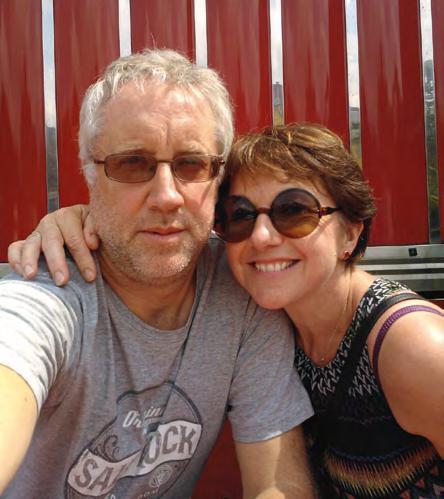
Prior to onset, Ted was fit and active –he enjoyed playing racquet sports regularly and cycled extensively. Thanks to immediate diagnosis and intensive neurological rehabilitation, his condition improved considerably and he regained movement. But some aspects of life remain seriously compromised by possible irrecoverable damage.
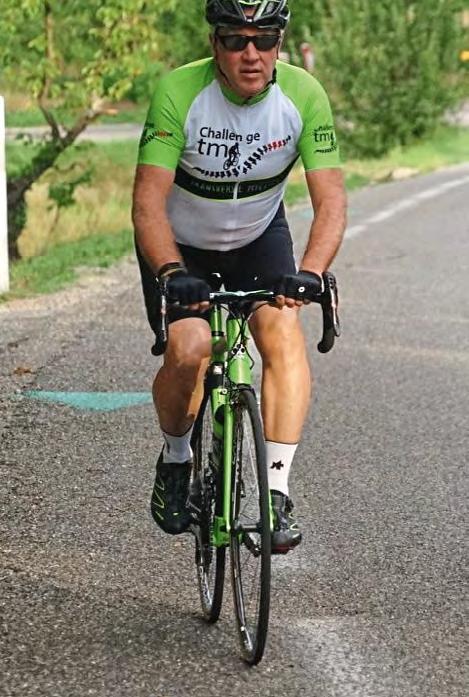

Ted, now 60, can walk but returning to some semblance of a normal life has been extremely hard and one major frustration has been the attitude of others – including medical professionals and governing bodies.

He explains: “The battle to retain my blue badge is a classic example. Evidencing my disability was futile – my GP has no knowledge of TM, and I was signed off by my neurologist as there is no further treatment other than continued physiotherapy. In the real world, I cannot get in or out of a car unless the door is open fully, and standing up is fraught with difficulty. Walking is extremely difficult, painful and exhausting.
“I have to self-catheterise five or six times a day, and that means using disabled toilet facilities when I’m away from home. You certainly get the feeling that some people are judging you when you use them!
“The additional scrutiny those with hidden disabilities are subject to is a reality. However, the hope is that by raising awareness we can help educate and effect meaningful change.”
Ted lives with fatigue, impaired mobility, bladder/ bowel issues – but the most enduring reminder is the excruciating, intense neuro pain from active muscle groups, which doesn’t let up. The relentless pain has been by far the most difficult aspect of his SCI to deal with.
For Ted, access to rehabilitation was paramount. But he acknowledged that others may not have the resources to access intensive therapy and founded Challenge TM to help. Through cycling challenges, including summiting Mont Ventoux, he has raised more than £45,000 to date to help fund treatment for others.
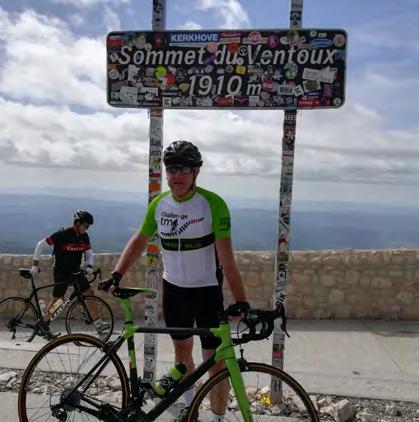
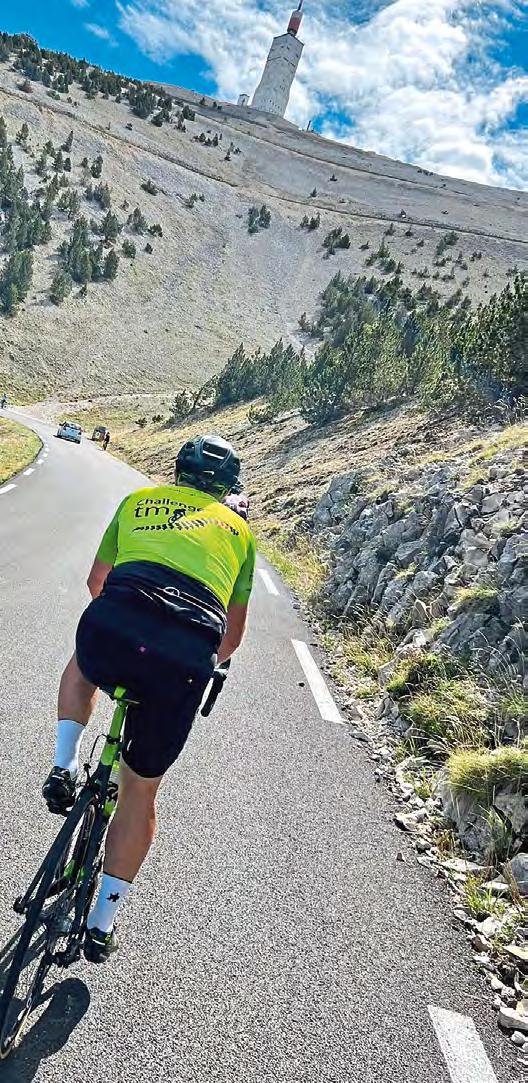
He says: “I was lucky when I was struck down that it was in a place where this rare and easily misdiagnosed condition was recognised and treated quickly. Others may not be so lucky and without fast and effective help it can have serious, long-lasting effects.”
Ted benefited from intensive rehabilitation at Hobbs Rehabilitation. Helen Hobbs, its co-founder and director, says: “Intensive rehabilitation is vital if potential for recovery is to be maximised. Ted was able to access a host of therapies and a range of neuro-technology and his experience of this opportunity – and his determination – has fuelled his quest to help others access the same.”
For more information on Challenge-TM visit: challenge-tm.org To
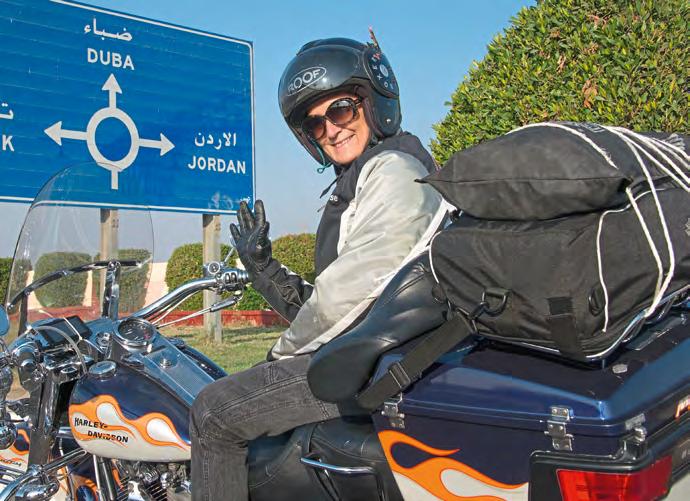
Author Bizzie Frost regained some ability to walk after a spinal cord injury but felt this meant her condition was never considered ‘serious’. Here she shares how her experience led to an unforgettable journey – and a book!
“My life was turned upside down on Sunday, 10 January 1999 when I woke from spinal surgery to find I was paralysed down my right side. Back then we were living in Jeddah, Saudi Arabia, and the neurosurgeon had promised I’d be out of hospital soon. Instead, after three weeks in hospital, I found myself in a rehabilitation centre.
“Everything about my condition was rare, starting with the massive, herniated disc at T8/9 and the resulting Brown-Séquard syndrome. It was hard fathoming the sensations coming from my legs: a left that could move normally but couldn’t feel pain, heat or cold, and a right that couldn’t move and had no proprioception that did feel those things.
“When I tried standing, the foot on my ‘good’ left leg couldn’t feel the floor, but the foot on my paralysed leg could. I had to rely on the sensations coming from one foot to tell me what was going on with the other.
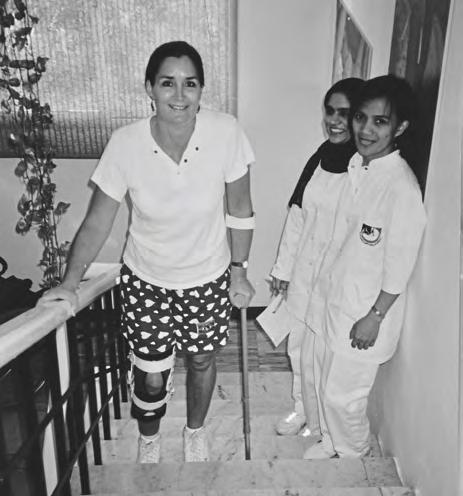
“Rehab in the strict, gender-segregated and religious Saudi environment was very different to centres in the UK like the Royal National Orthopaedic Hospital, which I’d attend later. Wheelchair skills sessions and leisure activities were only for male patients. Non-medical rehab for women was a session in the kitchen learning to make samosas – because in the Saudi environment, that’s where women belonged.
“Weeks went by, and I slowly relearned how to walk; first with a Zimmer, then with crutches, and finally with a single walking stick. As a walker, I’ve found that random people felt it was okay to stop me – in supermarkets, shops, or on the street – and ask, ‘What’s happened to you then?’

“When I was using crutches, they assumed my ‘injury’ was temporary – like from a skiing accident. Once I was using a single walking stick, they’d say, ‘But you’re far too young to be using a stick?’
“I had been determined not to use a wheelchair, but when I eventually did while out shopping to save time and energy, it was a relief finding people didn’t ask these questions. They seemed to accept that whatever had happened was ‘serious’ and asking would be intrusive.
“It took years to get over my loss of inclusion in sporting activities. I used to play tennis, go for long walks at weekends, or play golf with my husband Richard. I had to find a new ‘me’ that wasn’t the ‘me’ I knew. I felt adventure had been ripped from me and I was a tag-along, disabled wife.
Bizzie’s book ‘Travels with Maridadi: Harley-Davidson Adventures in Saudi Arabia’ was published on 28 March. It’s available to buy worldwide and in the UK at Waterstones, WH Smith and through Amazon

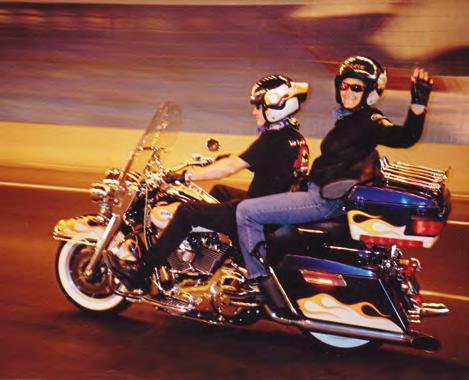
“When Richard suggested we buy a Harley-Davidson motorcycle, I thought his idea was crazy. Then a friend invited us to join him on a 2,500 km ride from Jeddah to Muscat, Oman. I couldn’t resist the opportunity to ride across the Central Arabian Desert on a Harley, and so we bought our customised Road King. We called it ‘Maridadi’, meaning ‘beautiful’ in Swahili and it brought the thrill of danger and adventure back into my life. We spent the next 10 years exploring Saudi on our Harley, as well as the UAE, Egypt and other places.”
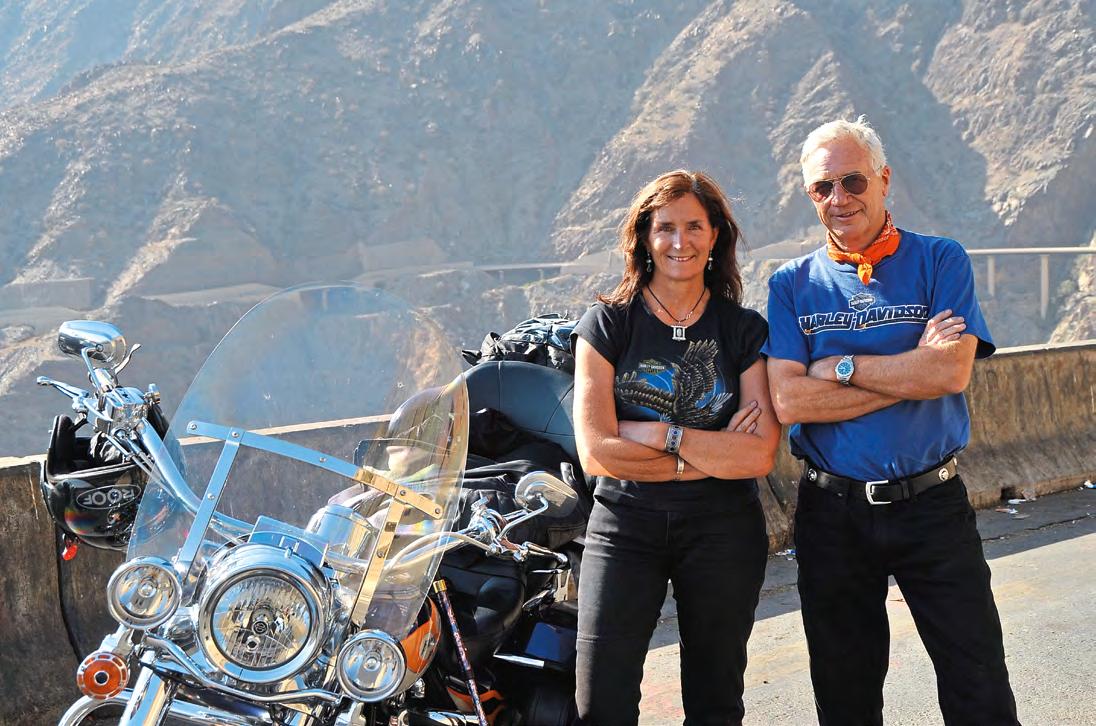



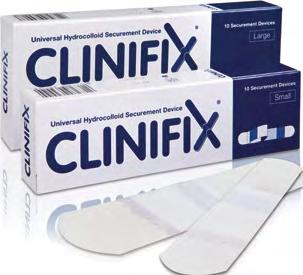





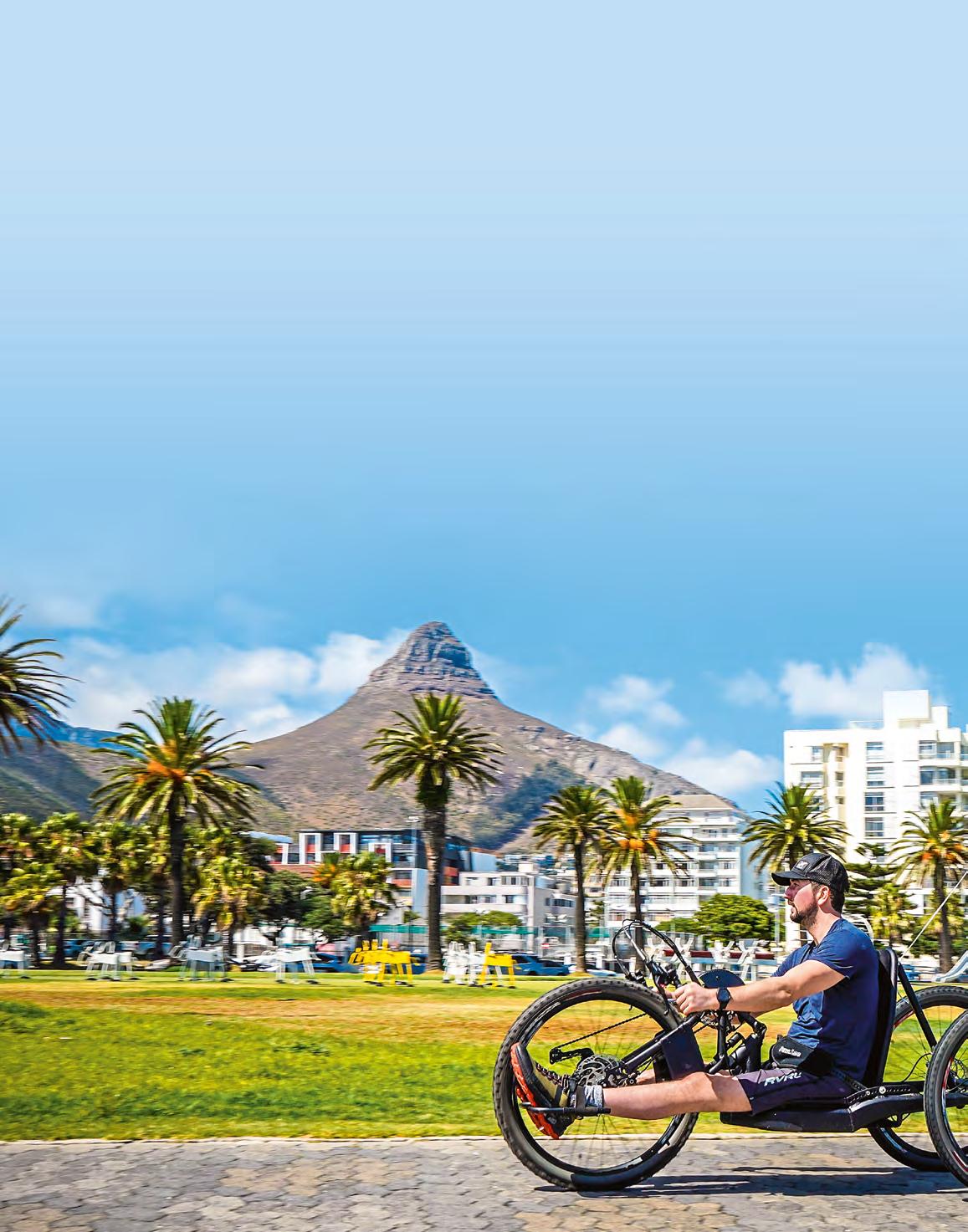
Acold and unforgiving Antarctic wind violently buffeted the exposed skin on my face. I’d been on the move across the ice and snow for three hours, and I still had another 13 miles to cover. As I headed into the wind, I could feel my pace slow, and the subzero temperature really start to bite. This was just the start of an epic test of endurance and logistics known as the World Marathon Challenge that would see me attempt to complete seven marathons in seven days across seven continents. If I
could achieve the feat, I would become the first person with a disability to finish the challenge.

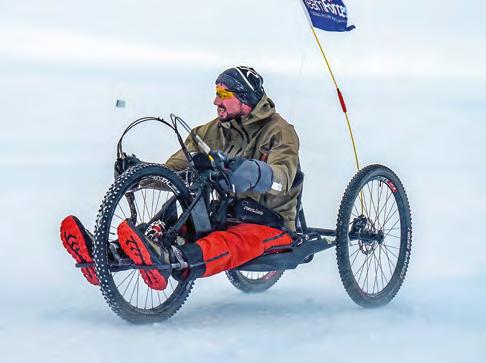
After six hours, I’d managed to cover 26.2 miles across the windswept wilderness of Camp Novo, Antarctica. While I was elated to have finished my first marathon, I knew that I’d need to push through exhaustion and fatigue if I was to complete six more. As we flew over the vast Southern Ocean on our way to Cape Town, I reminded myself of the true purpose and reason for taking on this ambitious challenge – to raise £80,000 for the Armed Forces ParaSnowsports Team (AFPST).
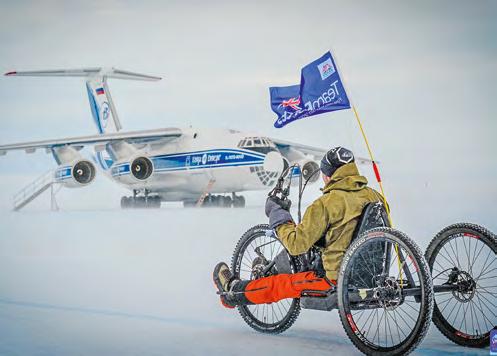
I was doing it…for all of those with spinal cord injuries and disabilities across the world – to prove that we are just as mentally strong as anyone else
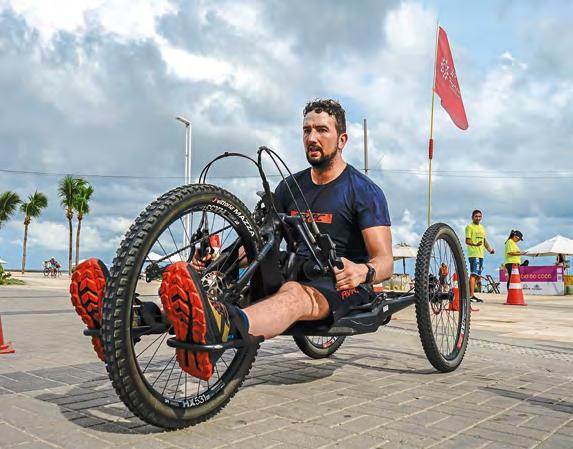
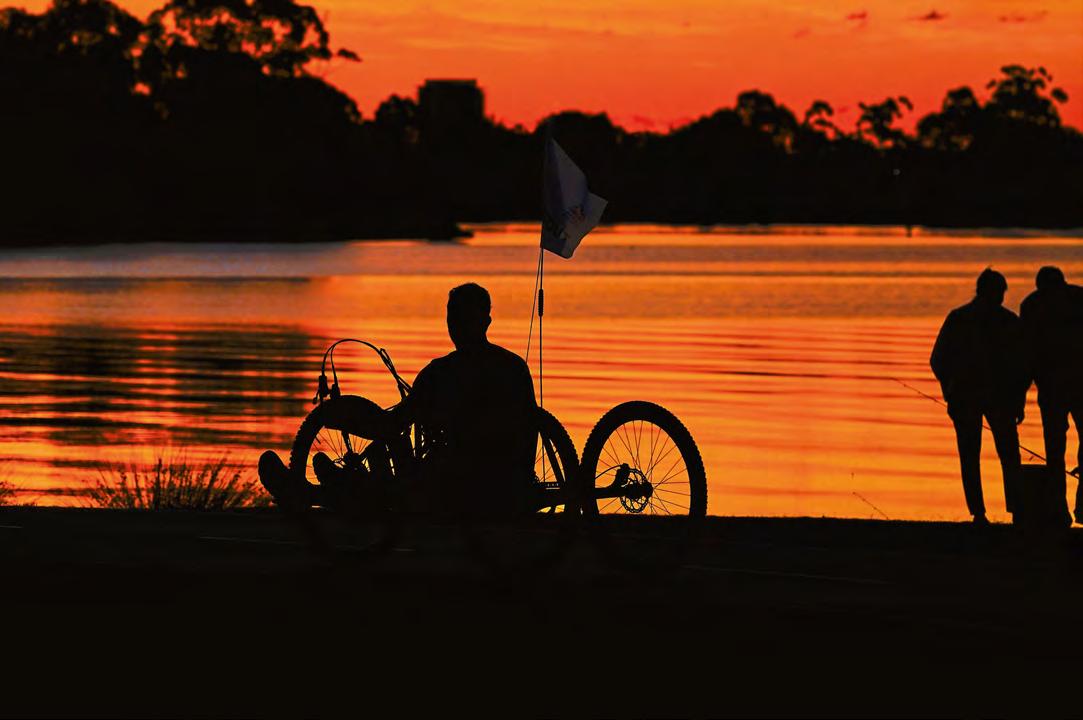
The charity played a pivotal role in my physical and emotional recovery since sustaining a spinal cord injury, and this was my way of helping ensure that the charity could continue to support injured veterans in the future.
From the elegance of the coastal marathon in Cape Town, beneath the iconic outline of Table Mountain, to the stunning twilight marathons in Perth and Dubai, our journey across the world continued in earnest. In many ways, the most demanding aspect of the challenge was proving to be the difficulty of resting and recovering while flying across the globe in less than 168 hours, and the reality of managing a spinal cord injury in a confined and inaccessible space. Despite these challenges, my confidence grew with each day that passed, and with each marathon completed.
I was drawing inspiration from some of the athletes attempting to complete this challenge alongside me, including an unassuming and loveable 80-year-old cowboy from Texas called Dan. Each of us was fighting our own battle, with our bodies and our minds, but as a collective, we encouraged
and supported each other to overcome the odds and succeed. The searing heat and humidity in Fortaleza, Brazil posed a significant challenge for the penultimate marathon. The cumulative fatigue of running a sixth marathon in just six days, combined with jet lag and
Each of us was fighting our own battle, with our bodies and our minds, but as a collective, we encouraged and supported each other to overcome the odds and succeed
a lack of quality sleep, meant that everyone was deep in the proverbial hurt locker. We were following a looped course along the city’s promenade, flanked by the Atlantic Ocean to our

right. The sights and smells of Brazilian culture accompanied us on our run, and as I spun the wheels with each rotation of the crank, I got closer and closer to finishing this most epic of endeavours. The impossible was starting to feel within my reach. I couldn’t have done any of this without Carl, the friend who had volunteered to come along as my support crew. In the most testing of environments, whether that be sub-zero or baking hot temperatures, he had ensured I’d kept hydrated and fuelled. After two hours and 45 minutes, I’d finished the Fortaleza marathon dripping in sweat and exhausted, but now only one final marathon, lay ahead.
Landing at Miami International Airport in darkness at half past midnight on the Monday, 6 February 2023, I now had less
than four hours to complete our final marathon along the famous Miami boardwalk. After setting a new speed record for a dash through customs, we were taken by coach along quiet city streets to our start point. Through gritted teeth and digging down into the last reserves of energy, I (slowly) made my way along the boardwalk, flanked by golden beaches to my right and bustling bars and clubs with neon signs to my left. At the toughest moments, I’d remind myself that I wasn’t doing this for myself, I was doing it for
AFPST, and for all of those with spinal cord injuries and disabilities across the world – to prove that we are just as mentally strong as anyone else. After two hours and 30 minutes, I rolled across the
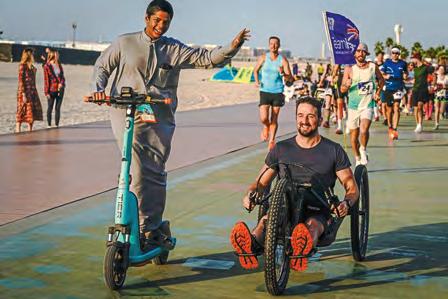
finish line to complete the most epic of global challenges. It had been seven long, testing days, but the experience of a lifetime and a reaffirmation that we are all capable of more than we believe!
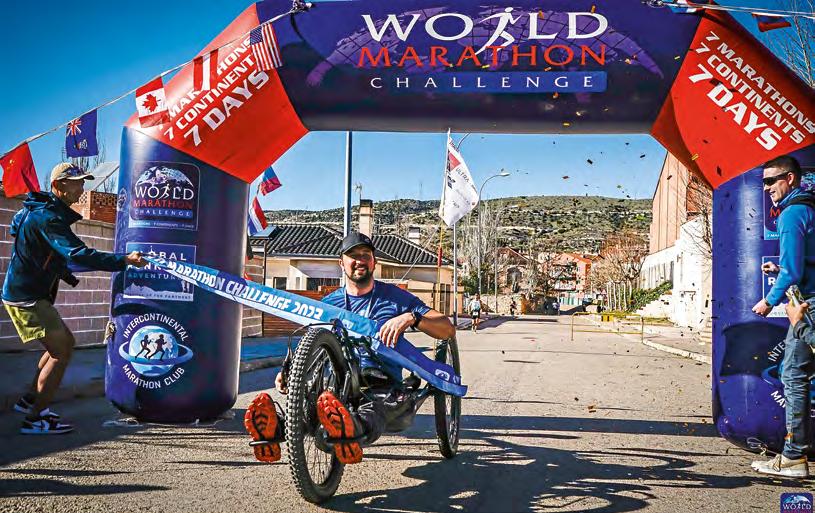


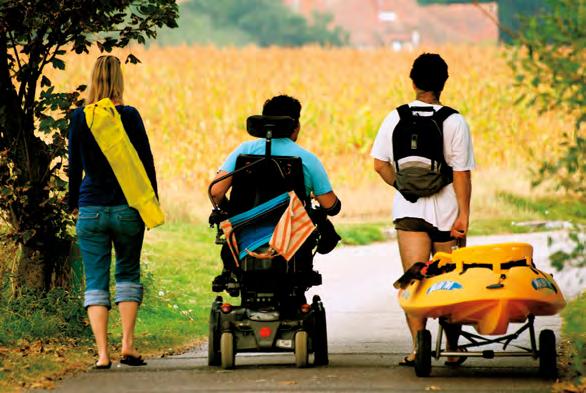
Q: Congratulations to you and your wife Daisy on the birth of Lily. How old is she now?
A: Thank you, she’s three months old.
Q: How are you feeling? Are you getting any sleep?
A: Adjusting to the intermittence of sleep can be challenging but I’m so overjoyed that she’s here that she could literally burn down my house and I’d still love her to bits. I’m completely smitten.
Q: Can you tell us about the big day? Was it how you’d both planned?
A: We were sure that she would be late. We had various dates in December in mind but she was very determined not to be a December baby and came two weeks early. Everything happened very quickly – it was all a bit of a whirlwind.
Q: Was everything at the hospital accessible to you as you needed it?
A: Yes absolutely, it was fantastic. She was born at Epsom hospital –it was all accessible and the staff were really accommodating. It was absolutely brilliant. I couldn’t have asked for more.
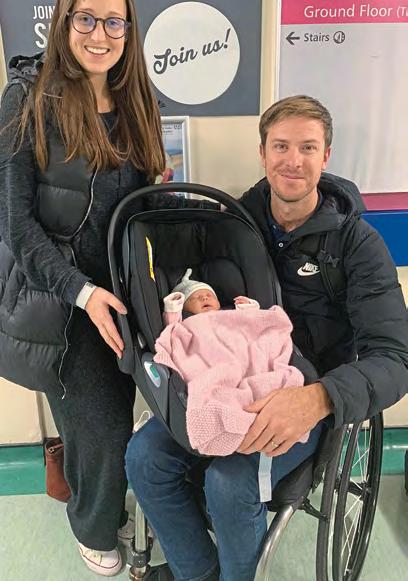
She absolutely loves sitting on my lap and wheeling round the house with me
Q: How did it feel bringing Lily home for the first time?
A: It was a bit surreal. You’ve been waiting for her for over eight months, and you finally get her home. It was really overwhelming and incredibly exciting. Every day is very joyous.
Q: What’s been the best moment of being a dad so far?
A: It’s when she smiles. She’s got a beautiful smile and every time she does it, she melts my heart. I’ve spent the last three months working out what makes her smile and I think I’ve finally cracked it – blowing raspberries! She’s got me wrapped around her finger.
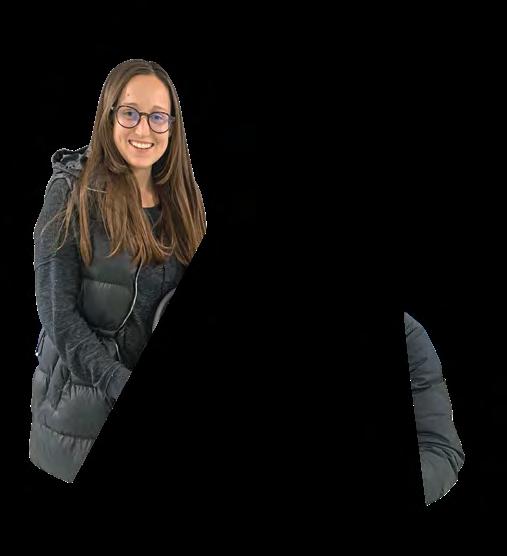
Q: Has being SCI restricted anything for you so far in terms of parenting?
A: The great thing is she absolutely loves sitting on my lap and wheeling round the house with me. The constant battle of having SCI means we have to think about and find ways to do things a little differently.
It means we’ve had to make little adaptations – we’ve adapted the nappy changing station so that I can wheel underneath it, for instance (I probably should have changed more nappies than I actually have)…
Q: Do you have any concerns for the future in relation to parenting with SCI?
A: Just my ongoing health. It’s really made me think about what I’m eating, how much exercise I’m getting etc., just to make sure I’m looking after myself as best I can. I think one of the greatest bits of advice I had in rehab was to be a champion of my own medical care and that’s even more important now.
Q: It’s your first ever Father’s Day in June, how are you going to celebrate it?
A: It’s also my dad’s first Father’s Day as a grandfather so we’ll try and do something as a family. We’ve recently joined the National Trust and our favourite thing to do is go for a coffee and cake, so I think we’ll try to do that.
With Father’s Day just around the corner, we caught up with SIA vice chair and new dad Chris Keogh. Here he tells us about nappy changing, sleepless nights and how his daughter’s smile melts his heart
Ispent 26 years in the police force, first in the North West, then the South. My life changed one Friday evening in 1997 when I was chasing after burglars. I took a blow to the top of my head and fell backwards out of a first-floor window. I sustained a head injury, collapsed lung and an incomplete spinal cord injury at L1.
wheelchair fencing – two guys beating the living daylights out of each other. I thought, “I have no idea what that is, but I’ve got to have some of that in my life”.
I really wanted to do sport again and the only one that interested me was wheelchair fencing. Since that day, I haven’t looked back. The sport became a passion. I trained hard, using all the skills I learned over 10 years of gym graft. I fenced in the national championships in 2009, winning one gold and two silver medals. I was selected to fence for Great Britain and in my second competition, in Montreal, April 2010, I won a bronze medal in the women’s foil.
Wheelchair fencing is a wonderful sport and a perfect physiotherapy tool to strengthen your core, improve balance and give you self-confidence
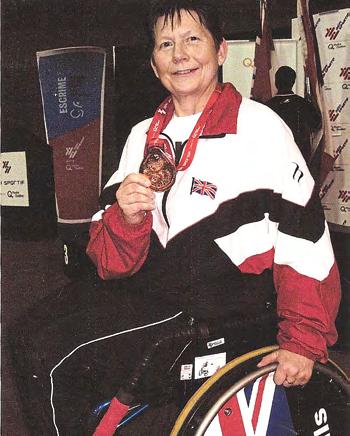
To learn more about wheelchair fencing, please visit britishfencing.com

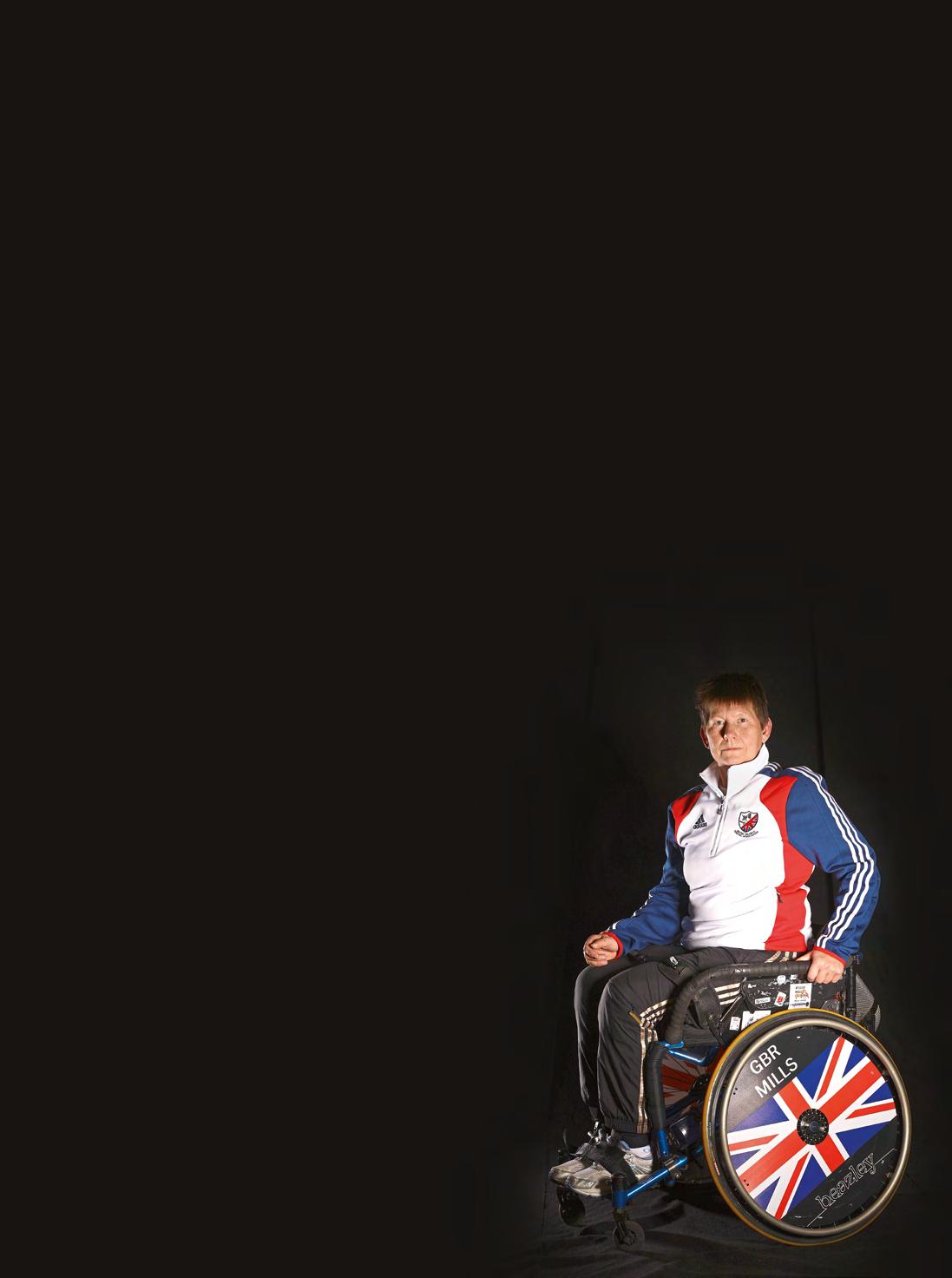
competitions, it was too far for me to walk on crutches, so a day wheelchair also became a feature.
Wheelchair fencing is a wonderful sport and a perfect physiotherapy tool to strengthen your core, improve balance and give you self-confidence. It restores your self-esteem – and it’s really cool when you can boast that your bag is full of swords!
I spent the next seven months at various hospitals, including Salisbury in the spinal injuries unit. I was a keen hockey player and cricketer, and wondered what sport might replace the adrenaline rush I got from playing both.
The next 10 years were spent in the gym, in various physiotherapy establishments, and in some unusual alternative therapy places. I managed to progress to walking with two walking sticks and minimal orthotics. I refused to use a wheelchair for everyday use. Life was extremely tough.
In 2008 I was watching the Beijing Paralympics on the BBC. The opening credits featured
I started to compete regularly for GB in preparation for London 2012. However, the more I fenced the more my condition deteriorated. I went to see my neurosurgeon who confirmed I was aggravating a previous neck injury. I had no alternative but to retire from competitions at the end of 2012, but not before I won a bronze medal in women’s sabre in Hong Kong.
I switched my energy to coaching and later trained as team manager and escorted the international athletes to all their competitions.
You don’t have to be a daily wheelchair user to do the sport, but you need a special wheelchair. When I decided to get involved, I had to weigh up the pros and cons. The pros won! To get around at international
Wheelchair fencing helped restore Vivien Mills’ self-esteem after her spinal cord injury. Now a coach for British Fencing, she helps others do the same
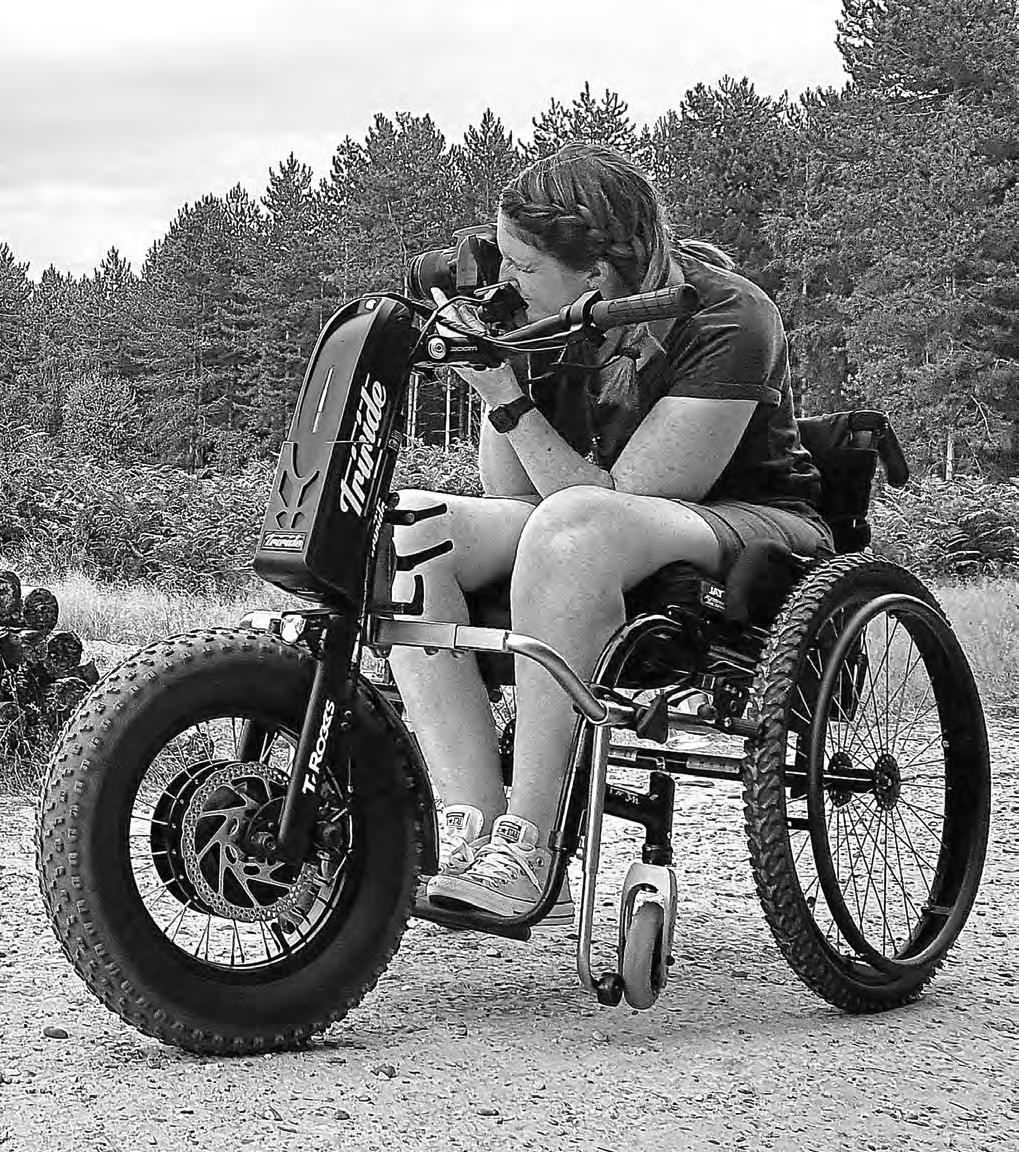
Doing the things you love is a vital part of making you who you are, but sustaining a spinal cord injury can sometimes make that difficult. Here we meet four people who have found fulfilment and joy in hobbies old and new following their injuries

Clair Brady, 42, from Suffolk almost gave up on her hobby after sustaining her T5-7 complete injury in a motorbike accident. Here she tells us why she’s so glad she didn’t
“Photography was a big passion of mine but after my injury I felt like I was forced to fall out of love with it. My camera was too heavy to hold up to my eye and I couldn’t get off the beaten track to find anything that interested me to photograph.
“I was frustrated, fed up with compromise and I almost gave up, almost!
“But I’m not one for quitting or being beaten. I reminded myself what I used to tell my photography workshop students: ‘There’s a photograph in everything’. So, using my mobile phone, I set about finding things to photograph around my home such as close-ups of the
houseplants and cakes I’d made.
“When going out on walks with my family, I would also sling my DSLR camera around my neck with the lightest lens, and would take the odd one-handed snap.

“I really got into gear when I invested in a motorised front
wheel attachment for my chair. What a game changer! With help from my partner Luke, I was able to get off the path and into fields, beaches and through woodland!
“For my birthday, Luke bought me a tripod and a mobile phone mount for the handlebars on my front wheel. So now, I can place my camera in position and operate it via an app on my phone which allows me to view what my camera can see.
“I’m so glad I didn’t give up on photography as it gives me so much pleasure – it was a hobby I thought I’d have to leave behind, but I have learnt ways to continue to do what I love.”
Alex Toon, 28, from Manchester, always had a love for Minis but it was only after his mountain biking injury in 2014 left him spinal cord injured (T10/11 complete) that he started restoring classic Minis as a hobby
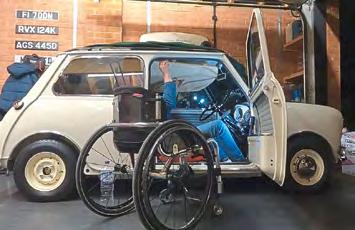
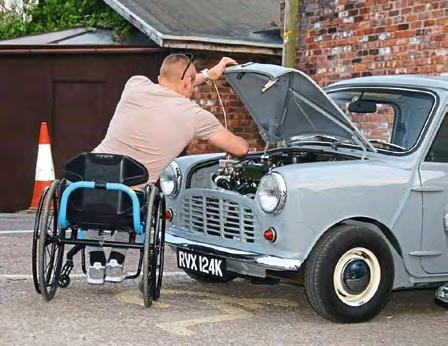

“After my injury I found that I didn’t want to go back to mountain biking even with the adaptations that made it possible. Instead, in 2017 I got my first ever Mini, something I’d always wanted to get, and my new hobby spiralled from there. This first one only had 1900 miles on the clock, so it didn’t need any work doing to it, but it gave me the itch to get involved with a project and do one up myself.
“The following February I bought one that needed new wheels and some cosmetic restoration, but it was during the Covid lockdown that I really wanted to challenge myself on a bigger project and bought a Mini Van which was a whole rebuild job – engine out – the lot!
“There are some things I can’t do because of my SCI but mostly I can do everything myself. Working on Minis is much easier due to them being so small. Reaching most areas isn’t a problem, even the roof!
“I wasn’t sure if classic car repair was something I’d be able to do following my injury, but it’s given me so much confidence
to realise that I can. When I’m working on the cars it feels like an escape from the outside world. I can switch off from work and other things going on in my life. There’s a whole community of people doing this, and I’ve met loads of great friends along the way. I take my cars to shows now too and have won first place in the Pride Of Ownership award two years in a row with my 1972 Mini Van!”
Samuel Malcolmson, 64, was injured in 2003 after a fall. He is a level T4 complete paraplegic. He got his first lathe after his injury and hasn’t looked back since
“After my injury I wanted to do something that I would enjoy – something that would pass some time but that I would also get satisfaction from. I had always enjoyed working with wood and my main interest was in woodturning, which I had done at school many years before, so I decided to get a small lathe and give it a try.
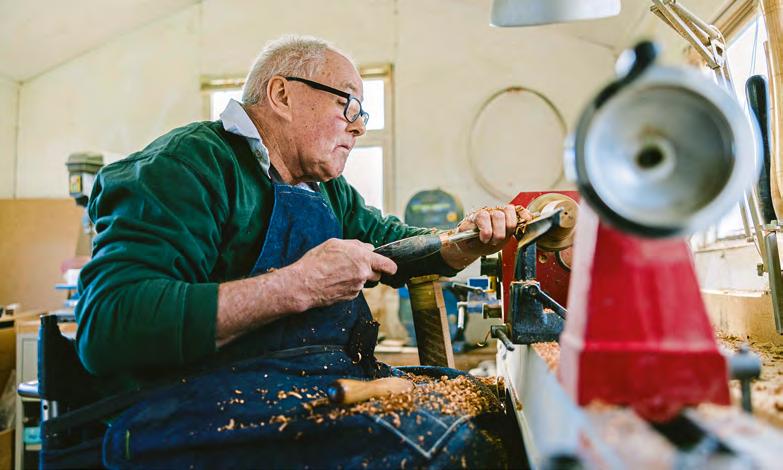
“I had to think about adaptations to the lathe, such as arm rests so that I could hold the chisels properly. The lathe also had to be the right height for my wheelchair. There were no courses at that time for disabled people (as most lathes are set up for people who can stand) so I learned mostly from books or DVDs.
“What I like about woodturning is that I can take a piece of wood, a log or a piece of a tree that someone has given me, and turn it into something decorative and beautiful. I am always looking for something different to make, so as well as the usual apples, pears, bowls and Christmas trees (very popular) I have been making gnomes and started turning pens.

“My hobby most definitely helps my wellbeing – because
I have to concentrate on what I am doing, it takes my mind off other problems. It’s the distraction which helps me get through the day – I can be in my shed working and not realise that several hours have passed.
I get great satisfaction from the appreciation friends and family show for my work too.
“I have also encouraged others to take up woodturning and have really enjoyed my time giving a few lessons and tips to other disabled people.”
Greg Jackson, 61, has been a T12 paraplegic since he was 21, following a motorbike accident in 1983. He started playing golf six years ago and says it has completely transformed his life
“Before I found golf, my life was at a bit of a low point. I felt that I needed to do more with my life. I had tried all sorts of things since my motorbike accident, but nothing really got me hooked. I Googled disability golf out of curiosity, not expecting anything to be available for a paraplegic wheelchair user.
“I came across The Handigolf Foundation, promoting real golf for disabled people, particularly for wheelchair users. It is run entirely on a voluntary basis by its members and provides specially adapted buggies for disabled people to play golf from.
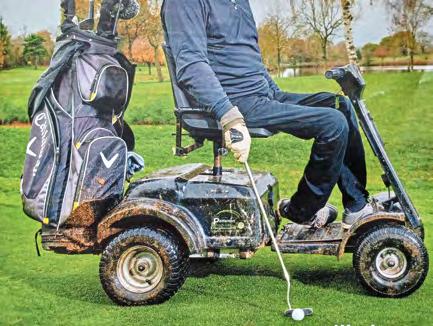
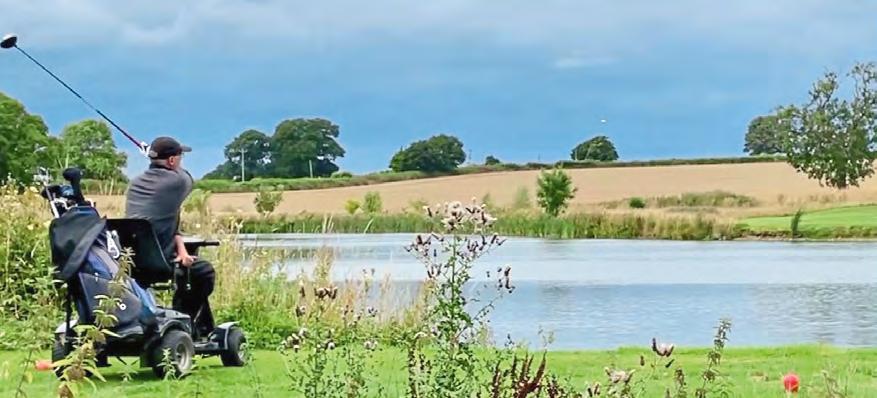
“Terry Kirby, the Chair of Handigolf, is also paraplegic and he showed me the adapted buggy and demonstrated how he plays his shots. I still remember the thrill of seeing that golf ball flying high and straight ending up past the 100-yard marker. From that moment on, I was hooked and couldn’t wait to get onto a golf course and try the real thing.
“Golf has opened a whole new world for me. I have made a lot of new friends since I started playing. The golfing world is a very friendly environment. It’s also
Just some of Samuel’s amazing woodwork a great way to get some fresh air in the countryside while getting some exercise.
I can’t imagine life without golf now. It’s given me so much and has massively increased my sense of wellbeing, confidence and self-esteem. For me, the highlight was becoming one of the first ever paraplegic wheelchair golfers in the world to be made captain of an ablebodied golf club, which also shows what an inclusive sport golf is for disabled people.
“If any disabled people reading this want to give golf a try, please don’t hesitate to get in touch. We are a friendly bunch of people and we would be more than happy to arrange a free taster session at a driving range in your area. Visit www.handigolf.net, visit our Facebook page, or contact me on 0791 364 2066.”

Getting yourself vaccinated from flu, shingles and Covid-19 every year is very important to prevent serious illness or death. People with a spinal cord injury (SCI) are at an even greater risk of developing serious complications if they contract one of these viruses, so we highly recommend you get your vaccines booked in as early as possible.
At the time of writing, it is unclear from the NHS if there will be an autumn vaccination programme for the 2023/2024 winter season. But if offered we would encourage our members to take it up.
The NHS offers the flu vaccination from early autumn, and we encourage anyone with a SCI, their close families and carers, to get theirs booked in. You can have them at your GP surgery, participating pharmacies or during some hospital appointments. Be mindful that GP surgeries order their vaccines a long way in advance and can’t order more if they get short, so we would advise getting it earlier rather than later.
This is available for those aged 70 to 80. Once you become eligible for the shingles vaccination a GP or practice nurse will automatically offer you the vaccine when you attend the surgery for general reasons. People with a weakened immune system cannot have live vaccines. You will be offered a non-live vaccine called Shingrix. It activates the immune system but also contains an ingredient called an adjuvant, which helps to boost the response to the vaccine.
Select from a range of specialist designed features combining functionality and style, to create an independent living space; perfect to you.
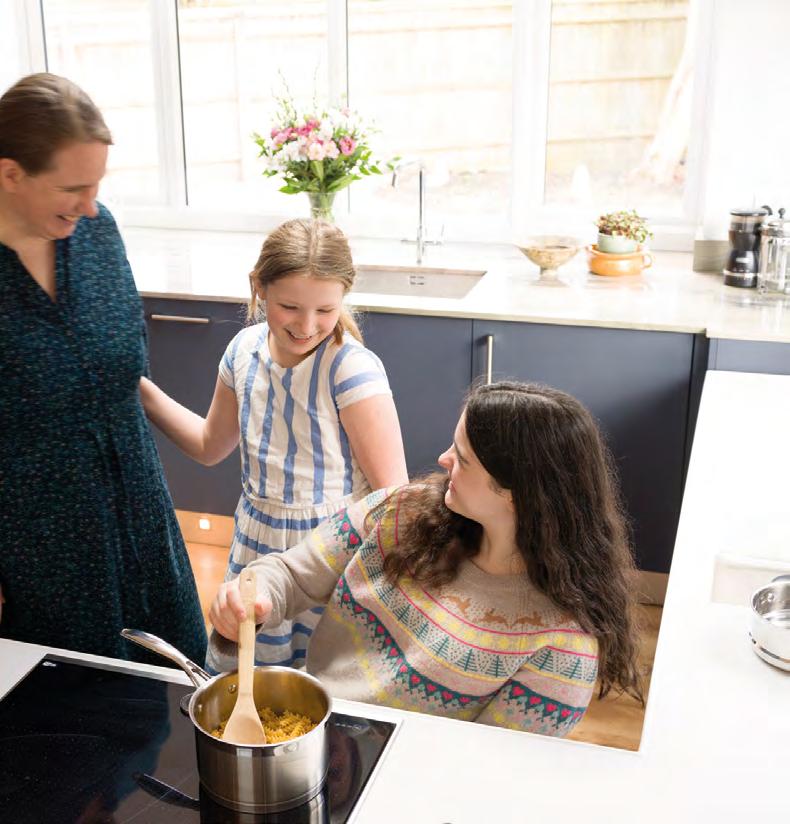
www.freedom-symphony.co.uk marketing@Symphony-Group.co.uk

With Freedom, the kitchen design can be truly universal for all the family to use and enjoy.
With Disability Pride Month in July, SIA trustee Mark Henderson looks back at the immeasurable impact two activists have had on the disability landscape, and why we are still fighting today

Many people know that June is LGBTQ Pride Month, a commemoration of the Stonewall Riots in New York city in 1969.
What is less commonly known is that July is Disability Pride Month, a celebration similarly rooted in protest and civil disobedience which began in the USA over half a century ago.
This year, Disability Pride will be poignant, due to the recent sad deaths of two legendary disability activists: SIA’s founder and president Baroness Sue Masham, and American disability icon Judy Heumann.
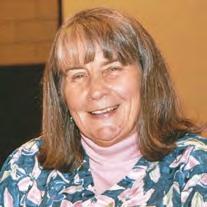
Sue, a former Paralympian and then parliamentarian was, right up to her death, amongst SIA’s (and the wider disability movement’s) most formidable
campaigners, as I experienced first-hand in SIA’s campaign to tackle the current care crisis. She was the embodiment of what SIA stands for.
Judy kicked off the disability rights movement (she is often called its mother) in 1970, going from civil rights sit-ins to disability portfolios in the Clinton and Obama administrations. Disabled parliamentarian
Sue MashamBaroness Jane Campbell mourned her as “… my freedom fighter friend [who] gave everything to our worldwide civil rights movement”.
Judy’s life and achievements highlight what has been won by the disability rights movement internationally over the decades, but also how the same ableist prejudices and tropes continue to impact our lives and battles to this day.

Because of polio, she was a tetraplegic wheelchair user from the age of two. Discrimination started early: she was refused a place in kindergarten because she was deemed a ‘fire risk’. In 1970, fresh from college, she was again refused a teaching licence because she would be a fire risk as a wheelchair user (despite pointing out that her power chair could travel faster than a walker). She brought the first civil rights court case challenging disability discrimination in a blaze of publicity. Winning that case set her on a roll. Two years later, she was leading street-level direct action which persuaded President Nixon to remove his veto on the Rehabilitation Act. This included s.504 – the first law prohibiting disability discrimination.
But it was not brought into effect. Three years later, President Carter won the White House on a pledge to do so. When he hesitated in the face of reactionary government and industry voices, complaining, as usual, about cost and practicality, it was the final straw for the disability rights movement
Judy led the famed 26-day 504 sit-in at the San Francisco federal offices. The longest non-violent occupation of a government building in US history was unplanned, but led to legendary camaraderie; disabled people and a few PAs shared supplies and makeshift facilities for personal care, and when the authorities cut phone lines to the building, undeterred deaf occupants communicated press releases out the windows using sign language. Judy led a delegation to Washington and s.504 was finally enacted.
Over a decade later in early 1990, the fight to pass the more comprehensive Americans with Disabilities Act (ADA) was stalling in Congress, with reactionary voices again railing against the cost and effort of making workplaces and public spaces accessible.
In March 1990, disability activists launched a wave of protests and direct action in Washington DC. The most famous became known as the Capitol Crawl. On the 12 March 1990, 1,000 disability rights activists gathered outside the US Capitol Building.
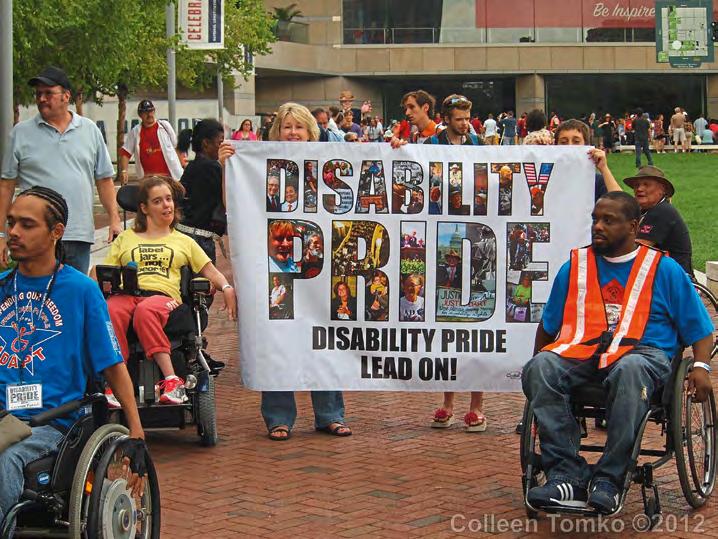
I simply refused to accept what I was told about who I could be. And I was willing to make a fuss about it
Michael Auberger, a SCI tetraplegic power chair user, made a speech at the bottom of the Capitol steps. He recalled how he climbed them as a non-disabled child, pre-SCI, adding that “we will not permit these steps to continue to be a barrier to prevent us from the equality that is rightfully ours. The preamble of the Constitution does not say: ‘We the able-bodied people’. It says: ‘We the people’.” This was a pre-arranged cue for, ultimately, more than 60 adults and children to abandon their wheelchairs and mobility aids and crawl up the Capitol steps to illustrate
the inaccessibility at the heart of American democracy. ADA was finally enacted in July 1990, and remains the main anti-discrimination law.
Disability Pride each July marks the three-decade civil rights struggle that led to ADA and celebrates the mushrooming of an international disability rights movement. Just as LGBTQ protests on homophobia and AIDS spread from the US to the UK in the 1990s, so too with disability discrimination, leading to the seminal enactment of the Disability Discrimination Act 1995.
However, both Sue and Judy could explain like no one else what the right to independent living meant in practice, and how civil rights prohibiting discrimination were not enough for people who, like them, required personal assistants and care in order to be able to make (in their cases extraordinary) contributions to society.

Following SCI, we get a stark illustration of the barriers that society places in the way of disabled people leading the lives that non-disabled people take for granted. SIA vice president Martin Hibbert says, “It’s not being in a wheelchair, it’s people’s attitudes that make me feel disabled.” This is borne out by SIA’s 2022 ‘What Matters?’ survey, which found that the top barriers to living a fulfilled everyday life were societal attitudes towards disabled people (identified by 92%), followed by barriers to accessible housing, employment, and care issues.
These barriers are shared with other disabled people. We are so much stronger fighting these barriers by coming together in the pandisability movement that Disability Pride personifies.
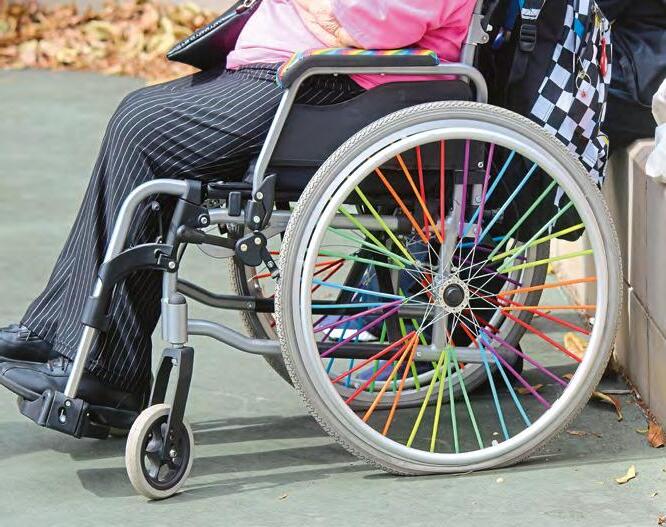
Judy ended up leading the Obama administration’s failed effort to get the USA to ratify the UN Convention on the Rights of Disabled People (which the UK has done). Disability Pride marks not only what Judy, Sue and so many others have achieved. It also amplifies our voices in challenging the same discrimination, stigma and tropes that still exist many decades on.
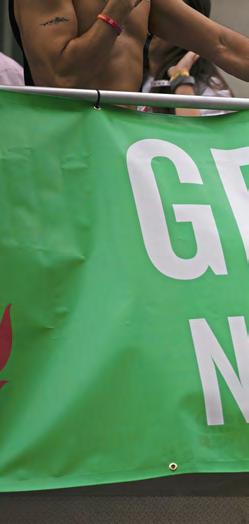
“When the authorities cut phone lines to the building, undeterred deaf occupants communicated press releases out the windows using sign language”ADOBE STOCK ADOBE STOCK
That is nowhere better shown than in how the tropes deployed to stop Judy attending kindergarten with non-disabled children and then from teaching are now writ large in the Grenfell Tower Inquiry.
Judy wrote in her memoir, Being Heumann, that when she first challenged her teaching ban on ‘safety’ grounds in 1970, “the Board of Education … felt ‘sorry for me, but that they had to assure the safety of pupils, such as during fire emergencies’. I was so tired of being called a fire hazard I could vomit.” She said she learnt at that moment how institutions trot out ‘safety’ concerns to justify disability discrimination.
Over half a century later, representing survivors of the Grenfell Tower disaster demanding escape plans from high rise blocks, we have ‘safety’ deployed to justify leaving disabled people trapped in their flats while non-disabled people evacuate. In the same breath as a Government minister acknowledged to

Parliament that “more than 40% of the disabled residents [in Grenfell Tower died, and] we are acutely aware of the need to ensure the safety of residents with mobility concerns”, he resisted a legal amendment giving disabled residents the right to an evacuation plan because “On safety, how can you ensure that an evacuation of mobilityimpaired people is carried out in a way that does not hinder others in evacuating or the fire service in fighting the fire?”
During a recent rehab readmission, I was once again back amongst newly disabled people questioning their identity post-SCI. Grace Spence Green, who was a medical student when we did rehab together following our injuries in 2018, and is now a junior doctor and passionate disability activist, sums it up:
“For me, identifying as disabled aligns myself with a community and a cause, a thing that is bigger than me. I am so proud of that community and the
work we do and that makes me proud to call myself disabled.
“On a personal level, I think my injury has forced me to grow in so many ways. At first I didn’t know what it felt like to be me. I could no longer access things I did that were previously a big part of my personality. I had to start from a blank slate again and had to work really hard to build myself up again and find things I could identify and connect with. So I’m proud of that too!”
Just as LGBTQ Pride has been instrumental in empowering a movement, so too has Disability Pride. Judy wrote: “Some people say that what I did changed the world. But really, I simply refused to accept what I was told about who I could be. And I was willing to make a fuss about it.”
This July, let’s celebrate Sue and Judy’s determination to define who they were and what they could be. And remember: you don’t need to be a full-time civil rights activist to make a difference: just make a fuss.

What makes my perfect summer? Warm days and light nights, trips to the coast, relaxing with a glass of something chilled in a garden bursting with colour, and my favourite part, firing up the BBQ.
My recipes have a big Mediterranean influence which stems from living in Mallorca for a few years and visiting family there. My Chicken Souvlaki is simple and succulent –a real summer party dish! Prep it in advance to save some time and then a quick BBQ, grill, oven or air fry and it’s done! The flatbreads to go with it are nice and a lighter alternative to regular doughs, and much less work – a win-win! Follow this up with a zingy lemon cheesecake and wash it all down with a blood orange Sangria. Bring on the summer!

Ingredients
Chicken Souvlaki
• 400g x chicken, diced
• 2 x cloves garlic, minced
• 2 tbs x dried oregano
• 1 tbs x dried mint
• 1 tbs x red wine vinegar
• 2 tbs x olive oil
• Juice of ½ lemon
• 4 x skewers (TIP: if using wooden, soak in water to stop burning)
Method
• Combine all of the ingredients into a dish, mix, cover with foil and return to fridge
• Marinade for anywhere between 30mins and 12hrs
• Thread the chicken onto skewers, leave slight gaps to ensure even cooking
• Place in a griddle pan or BBQ high heat for approx. 8min, turning occasionally
• Serve warm in flatbread with Tzatziki and salad (recipe for Tzatziki can be found right)
Homemade Tzatziki

• ¼ cucumber, finely diced
• 100ml x Greek yoghurt
• 1 x clove minced garlic
• 1 tsp x dried/fresh mint and dill
• salt & pepper
Method
• Mix all ingredients and chill, leaving the flavours to infuse for 30min
You can also add tomato pizza sauce and any of your favourite toppings to these versatile flatbreads!
Fabulous Flatbread ( makes 4-6)
• 300ml x yogurt
• 300g x self-raising flour
• 1 tsp x baking powder
• ½ tsp x salt
• 1 tsp x oregano
Method
• Combine all ingredients
• Divide into 4-6 balls
• Roll out thin
• Cook in a frying pan for a few min each side
Summer dessert
I came up with this zingy cheesecake under my mum’s lemon tree in Mallorca. We are always thinking of ways to use up the abundance of tangy yet sweet citrus, and this fresh, lemony light dessert is the perfect ending to a summer feast.

Ingredients
Biscuit Base
• 300g x Digestive Biscuits
• 125g x unsalted butter (melted)
• 2 tbs x lemon zest
Cheesecake Filling
• 500g x cream cheese (full fat)
• 100g x icing sugar
• 150g x lemon curd
• 1 tsp x vanilla extract
• 300ml x double cream
Optional Decorations
• 150ml x double cream
• 2 tbsp x icing sugar
• 2 tsp lemon curd
Method
• Blitz the biscuits for the base in a food processor until they’re a fine crumb. Mix with the melted butter and lemon zest and press down firmly into an 8”/20cm deep springform tin
• With an electric mixer mix the cream cheese, vanilla, icing sugar and lemon curd until smooth
TOP TIP: TOP TIP:
pre-freeze slices of citrus to keep your sangria extra cool
• Mix in the double cream and whisk until it’s thick and holds itself completely (don’t whip it too fast –slow and steady wins the race). Alternatively, you can whip the cream separately to stiff peaks and fold through
• Spread the mousse-like mixture evenly over the biscuit base and chill in the fridge for at least 5-6 hours
• Remove from the tin and decorate how you like - I whipped together the double cream and icing sugar and piped it on, and drizzled over some lemon curd
And what better way to top off a gorgeous summer meal than with a sip of chilled sangria on the rocks! Try this recipe to quench your thirst on a hot summer’s evening.

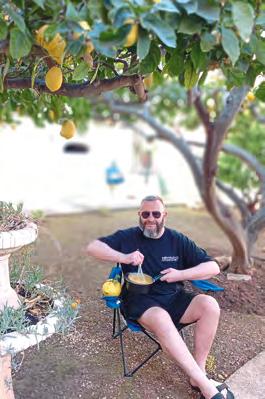
Serves 6-8
Ingredients
• 50ml x Brandy
• 1 x bottle Spanish red wine (we use Rioja)
• 200ml x orange juice
• 1 x apple, sliced
• 2 x blood oranges –one juiced, one sliced

• 1 x lemon – half juiced, half sliced
• 2 tbsp x sugar (sweeten to taste)
Method
• In a large jug, mix all of the ingredients. Chill until ready to serve. Works just as well with regular orange if blood oranges are not available
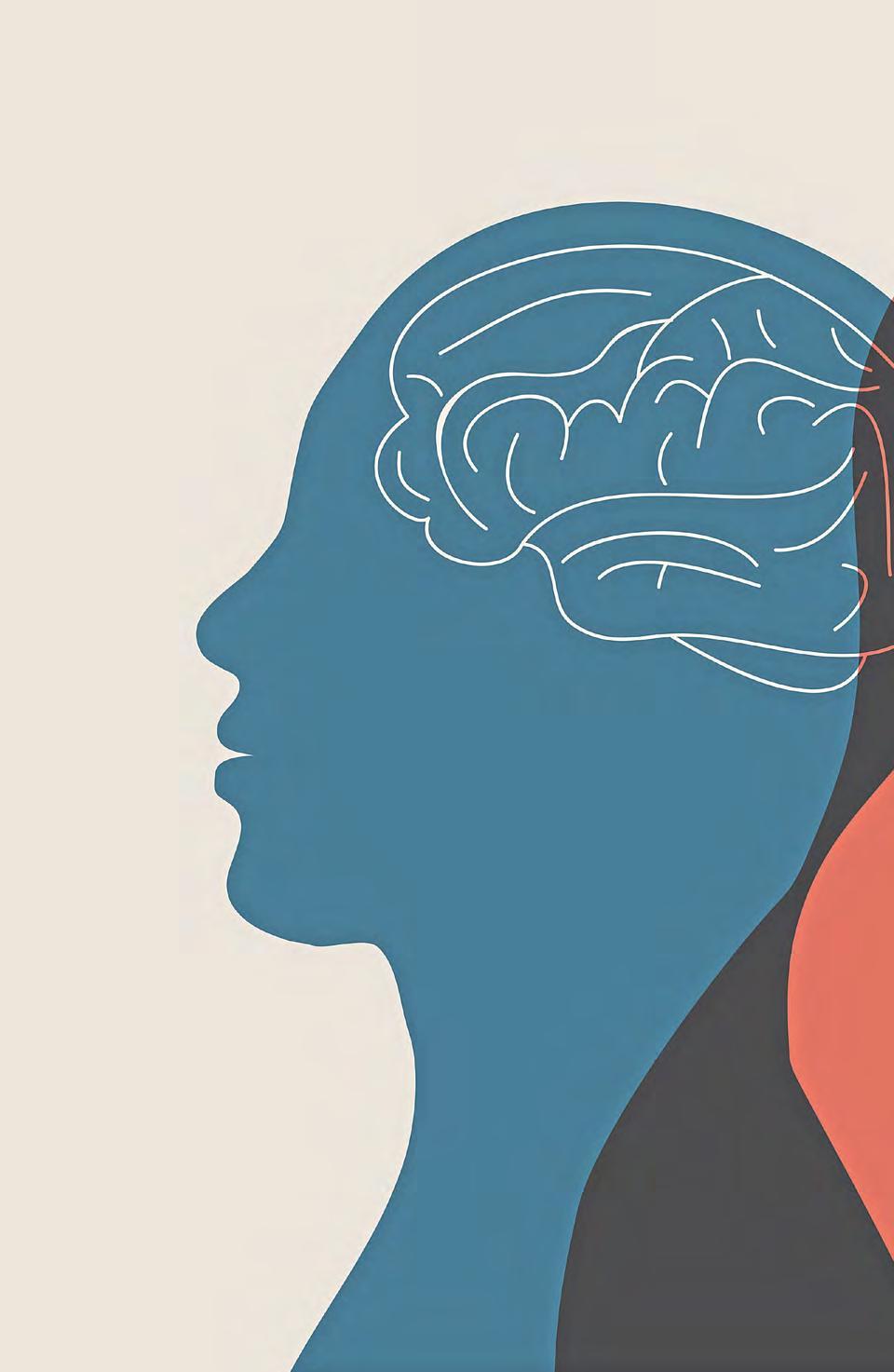

When I was first injured in 1989, I left the district general hospital (DGH) with mental health problems and concerns. I had an incomplete spinal cord injury at L1, L2 and didn’t want to appear vulnerable, but I was struggling. T he specialist spinal cord injury centre (SCIC) was the place where, eventually, they didn’t just look at my SCI, but at how I was coping mentally I wondered how people with more recent incomplete SCI and cauda equina syndrome (CES) were coping. I invited clinical psychologist Dr Jane Duff from the National Spinal Injuries Centre at Stoke Mandeville Hospital to help with putting together this column.
Seeking people’s experiences, I first spoke to Andrée, who was treated at a DGH. Like me, Andrée had a lot of inner turbulence, such as overcoming feelings about identity, including her reluctance to accept her disability and the massive life changes. Andrée was referred to a SCIC and this helped her a lot, including the mentoring support she then went on to receive.
Then there is Alice, who was treated on a neurological ward, where she had surgery on her spine. She had her own concerns initially, but mainly the pressure came from work colleagues who thought she should be back to ‘normal’ – failing to acknowledge the magnitude of what had happened to her. Alice received little in the way of mental health support from the hospital and still hasn’t been seen at a SCIC. She has found the past few years mentally devastating.
For Charlie, who was injured abroad, it was the messaging at the SCIC back home
Ruth’s work has always been in the mental health statutory and charitable sectors and she’s been writing about disability and mental health for numerous publications including The Guardian, The Morning Star, NR Times and local/regional press for nearly 10 years. She lives in Southport with a “diva of a cat” called Leonora.
that was so damaging. He said staff called those with incomplete injuries ‘part-time disabled’ and this limited the amount of physio received. A limit was also put on the mental health support he could get, as the psychologist was so pushed treating other patients. Additionally, he felt staff were giving him mixed messages regarding his injury, making him worried about his future. The positives during this time came only from support he found outside the SCIC.
What struck me was how in all cases it seemed as if the spinal cord injury was treated in isolation. Improvements didn’t happen until Andrée and Charlie got the additional support they required. Alice is still waiting for that elusive referral.
I asked Dr Duff why treating incomplete injuries without providing additional mental health support is problematic.
She replied: “That underlines the need to understand the perspective of and support the whole person, and the problems which often occur when a rehabilitation model isn’t used, with the ‘symptoms’ of injury being treated individually in the absence of psychological care and peer support.
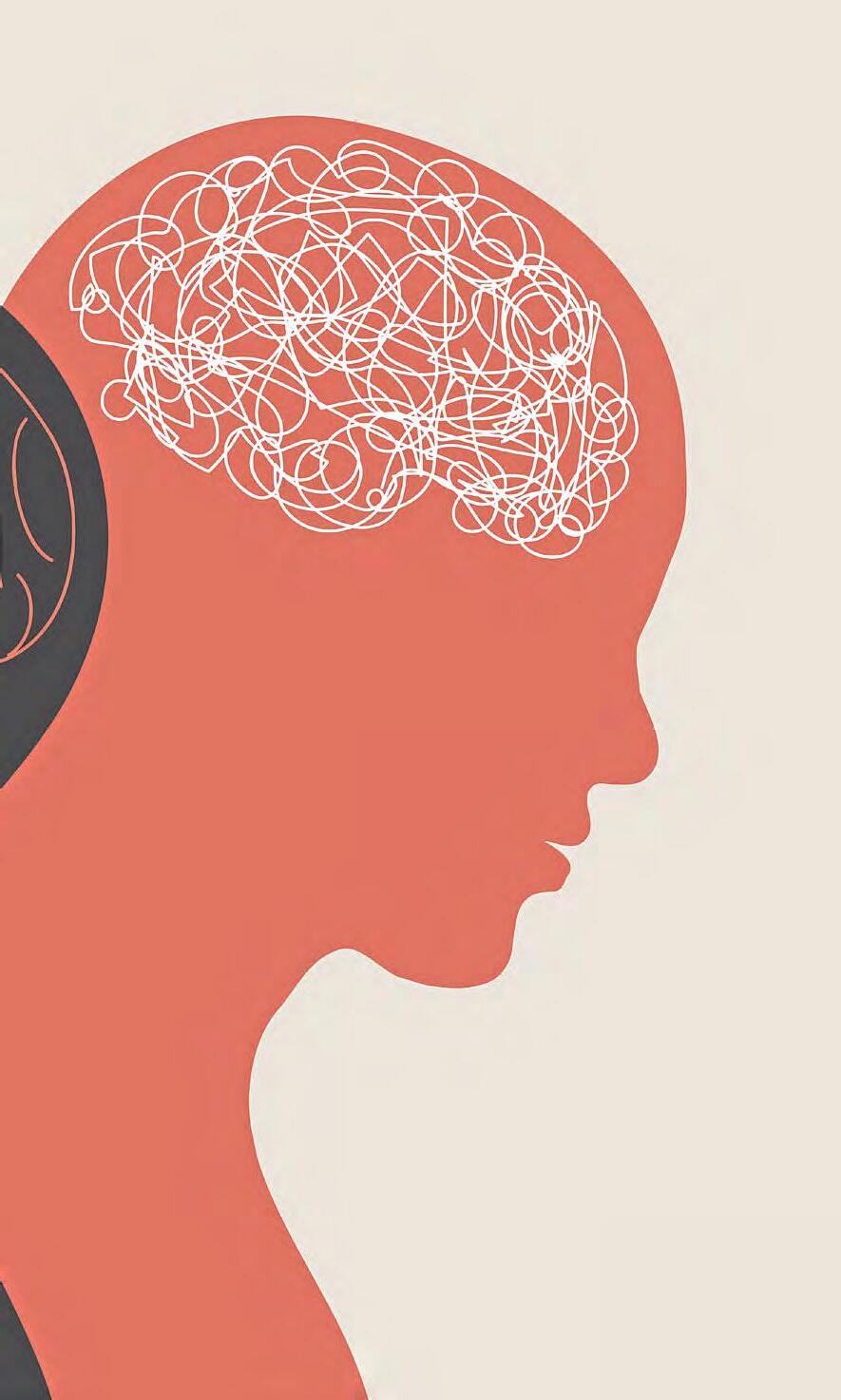
“Research has shown that people with incomplete injuries such as cauda equina who partially use a wheelchair can feel they are “not disabled enough”* and that the invisible aspects of injury, such as bladder, bowel and sexual function are often underappreciated for the substantial disabilities they can bring, with consequent negative impact on someone’s identity and quality of life.
“The difference when people are treated holistically is clear to see and increases with secondary conditions as we age.”
*Jones, K. & Hall, R. (2017). The lived experience of Cauda Equina Syndrome: a qualitative analysis.
No one gets SCI better than someone with a SCI. SIA’s support coordinators are all living with SCI. They work across the country offering support and advice, and providing a community for all those affected by SCI. Please see our article on page 51 for details on community support groups run by the team in your area, or alternatively, get in touch via our website, where you’ll also find details on our counselling service.
(spinal.co.uk/get-support/find-support-now/ )
THERE IS EMOTIONAL SUPPORT AVAILABLE, NO MATTER WHAT SPINAL CORD INJURY YOU HAVE
Inever did much before my injury, but I did run a bit and even attempted the Tough Mudder in the past. Now I have no core muscle structure and there is nothing much to stop my tummy from slowly growing. Which, unsurprisingly, it has. There appears to be nothing I can do about this, I wheel up and down the lane to try and keep fit but all it does is tire my arms and, I’m told, damage my shoulders in the long run. I even thought of surgery to try and just suck out some of the blubber, as you see on disgusting but strangely addictive TV programmes,
EDWARD BRIDGER-STILLE SIA member
but never really got around to seriously asking anyone about it. One day, someone mentioned the Keto diet, a low carb, high fat programme that puts your body into a special metabolic state called Ketosis. At this point, the body stops burning Cornish pasties and starts burning fat. It sounded like a brilliant idea, but you do have to cut out, or significantly minimise, your carb intake to get to this magical stage. This is easier said than done as, when you begin to look around and see what you like to eat, it turns out that almost absolutely everything is carbs.
Every meal seemed to come with potatoes, mashed, baked, boiled or otherwise, apart from fish and chips on Friday, which has its own minefields. Spaghetti Bolognese comes with spaghetti, obviously, and puddingy, pastry things dare not speak their name. It’s an evil and cruel diet that titters in the face of well-meaning gentlefolk going about their culinary business and enjoying the natural comestibles that nature hath laid upon this planet for our taste and pleasure.
Even breakfast turned into a no-go area with cereal, toast ‘and marmalade out. There seemed to be nothing that I liked that didn’t have carbohydrates in. If I’d cut them out, I’d be dead in a week. If not from starvation, then from boredom.
My greatest pleasure of all, sweets, preferably of the 1p variety, were also off the menu. There was light at the end of the tunnel however; sausages are OK, as is cheese. Bacon is good... that’s as far as I’ve got really, but it’s a good start.
A cooked breakfast could really swing it right through to lunch. No baked beans, of course, or fried bread, but eggs and bacon with grilled tomatoes and a couple of British snorkers could be made to work with aplomb.
Or you could do what I’ve actually done and (metaphorically) kick the whole lot into touch and make the best of my new disabled life. I enjoy food, I like wine, so have decided to make the most of life. Eat well and try not to get hung up on the things that make me miserable.
Cheers!
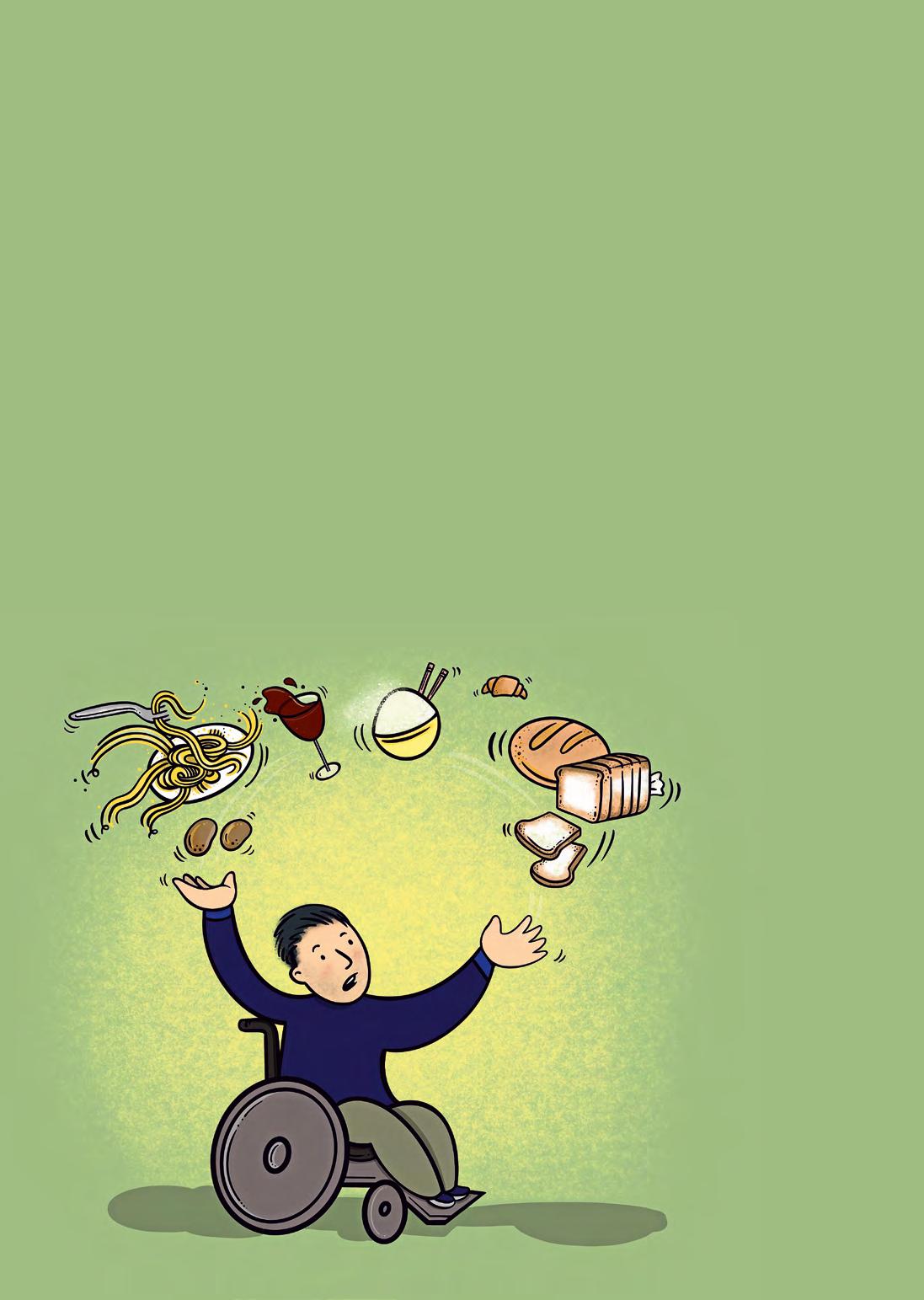












In March, we were all devastated by the loss of our founder and lifelong president and champion, Baroness Susan Masham. You can read about Sue and her incredible achievements on page 4 of this issue, but I wanted to add personally that I will be forever indebted to her and her unique vision, passion and energy. I was motivated from day one by Sue’s indefatigable and
When writing for the previous issue of Forward, I said we were working on our new and ambitious strategy. I am delighted to let you know that our Strategy 2030 has now been officially launched and pivots around three transformative goals:
1. A health and care system that works for all spinal cord injured people
2. Doubling our spinal cord injured members accessing all the support and advocacy they need
3. A UK government and public championing the cause of spinal cord injured people.
out for more on our web, social media and at every event over the coming months where we will share this vision.
singular ambition that everyone with a spinal cord injury could lead a life that suited them, that brought them fulfilment and joy. Sue will never know just how many people her work touched but her voice will forever be at the heart of what we do here at SIA.
These goals are mighty in their ambition but absolutely what must be done. And we are ready. It is our purpose to be the expert, guiding voice – for spinal cord injured people, for our sector and for the public, the media and the government. That purpose and these three goals will be underpinned by four exciting, comprehensive approaches to ensure their success. You will be able to read more about that plan in the autumn issue of Forward, but for now, look
Last month we welcomed Tom Pursglove MP, the minister of state for disabled people, health and work, to the SIA offices. The aim – to share the reality of the lived experience of people paralysed by spinal cord injury in the UK, and to demonstrate the impact that joined-up services can have. He and his team spent the whole afternoon with us exploring each part of the journey of rehab, care and support. A week later we launched our #SeriousSh1t campaign at the all-party parliamentary group event, and will be looking for the minister’s support for this and our ambition for automatic support and coordination of services from injury to home and for life. See page 48 to read the latest on our #Serious Sh1t campaign – improving bowel care for SCI people across the UK.
HARTLEY OBE CHIEF EXECUTIVE
NIK
It is our purpose to be the expert, guiding voice – for spinal cord injured people, for our sector and for the public, the media and the government
On 3 April 2023 SIA launched the #EverydayMountains competition. This competition will provide accessible equipment and packages exclusively to spinal cord injured people, for free, so they can tackle their own #EverydayMountains
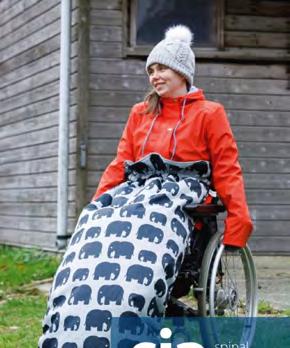
Martin Hibbert has proved, through the Martin’s Mountain project in 2022, which saw him climb Mt. Kilimanjaro, that disabled people can literally climb mountains if given the right support. The competition can be entered by anyone living with a spinal cord injury, including families, friends or parents of individuals.

To enter, all you need to do is head to spinal.co.uk/everydaymountains-competition/
Once there you will need to complete the online form, and state in a few words why you would like to win.
We have some amazing prizes on offer, which include Martin’s very own Mountain Trike that was used on his climb of Kilimanjaro, £1,000 worth of physiotherapy sessions, a Williams Racing experience at their HQ in Wantage, a space on the SIA Overseas Bike Ride 2024, an accessible shark dive experience, a stay in a fully accessible holiday home, a three-day intensive rehabilitation package from VIM Health, a BundleBean wheelchair cosy, £100 voucher from Active Hands and much more!
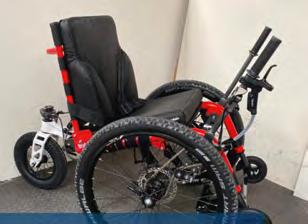
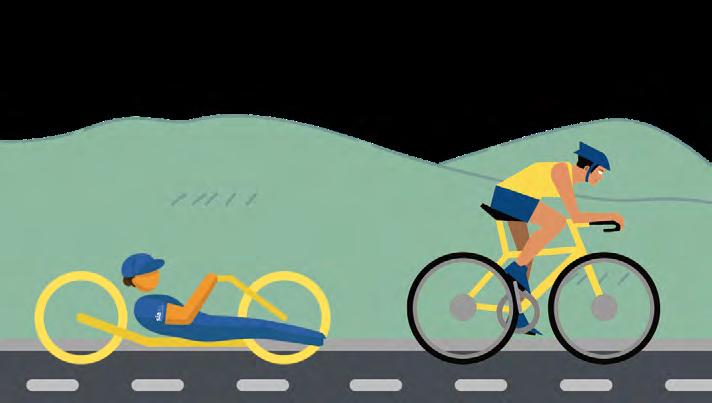
To be in with your chance of winning one of these amazing prizes, have a look at the SIA social media pages across Facebook, LinkedIn, Instagram or Twitter, or head to our SIA website to enter! spinal.co.uk/everydaymountains-competition/ Winners will be featured in our autumn issue of Forward magazine!
We’re delighted to share details with you of the latest companies to pledge their support for SIA by joining our flourishing Business Membership Scheme.

In April, we were joined by six fantastic companies: Elite Law Solicitors, Dean Wilson LLP Solicitors, CL Medilaw, Bespoke Health & Social Care (Spinal Injury Support), Complete Care Amegreen, and Temporary Adapted Living Solutions. These organisations come armed with vast knowledge, experience and expertise, and are hugely committed to realising our shared vision of a fulfilled
life for everyone affected by spinal cord injury.
Each of the companies that sign up for SIA Business Membership advocates for our charitable aims, and works alongside us, striving so that every spinal cord injured person can access the vital support services that they need.
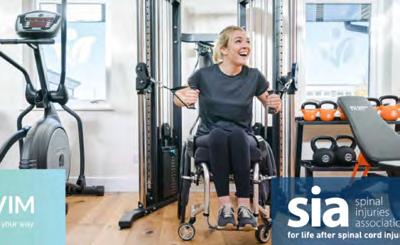
In addition to a financial contribution to our work, our Business Members are fully engaged across all our

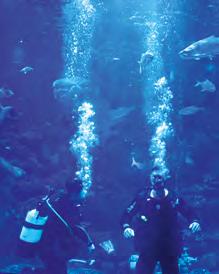
For a full list of our business members or for more information on joining our scheme, visit spinal. co.uk/businessmembership/
activities; from smashing fundraising challenges, to sponsoring our black-tie dinners, to lending their voice to our campaigns work, and putting their own clients in touch with our services, they really are doing it all!
We are hugely proud of the things we achieve together, so from everyone at SIA we’d like to say a huge thank you to the wonderful firms that support us as Business Members.
On Wednesday 19 April we were delighted to host our Royal Patron, HRH, The Princess Royal, at Church House in Westminster.
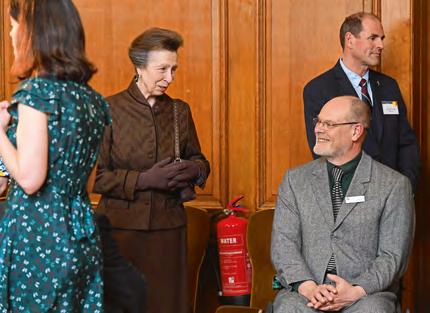
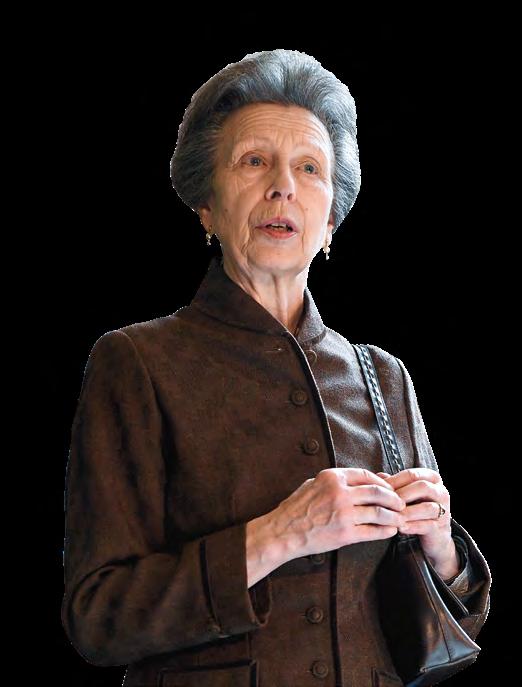
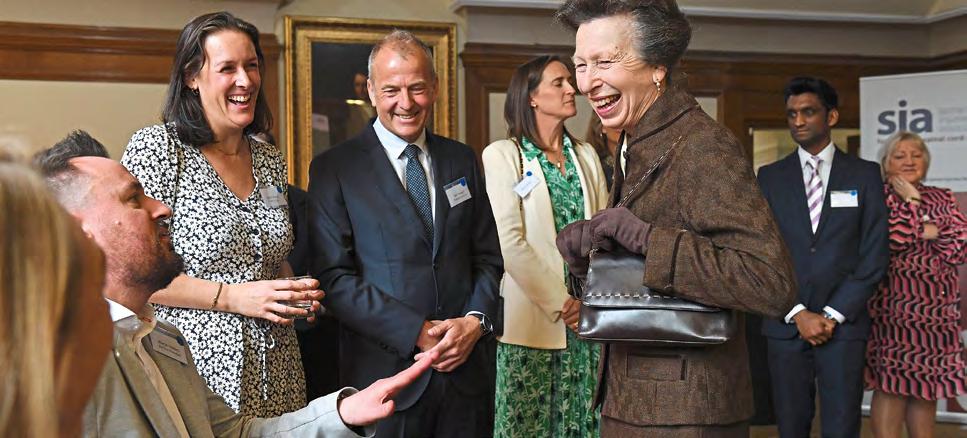
The event was also attended by our vice presidents, Claire Williams, Martin Hibbert, Paul Roy and Gerard McDermott.
The reception was a great opportunity to share our plans and vision for the year ahead with SIA’s key supporters. On the day our Vice President Claire Williams launched our new project, the Frank Williams Academy.
The Frank Williams Academy is all about transforming the lives of spinal cord injured people, through education, training, research and development. We want to educate spinal cord injured people, to empower them to take control of the decisions that affect their lives, educate health care professionals to provide safe, appropriate care, and lead research and development for better care and support. It is important we raise national standards and build an evidence base to influence long-term transformational change.
To do this, we need to raise £1.5 million over the next three years. To date we have raised over £450,000.
We’re delighted that our Trusted Finance Partners, Evelyn Partners, and Irwin Mitchell Asset Management, and Care Partners, Eximius and Premium Care Solutions (PCS), have renewed their partnerships and commitment to SIA. They bring a wealth of knowledge and experience in supporting spinal cord injured people, and we look forward to working with them all for another year.
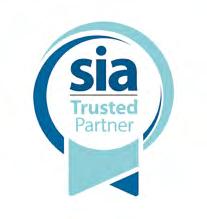

spinal.co.uk/getsupport/sia-partners/ our-partners/eximius/ spinal.co.uk/get-support/ sia-partners/our-partners/ evelyn-partners/ spinal.co.uk/get-support/ sia-partners/ourpartners/irwin-mitchellfinancial-planning/

We need to raise £1.5 million over the next three years. To date we have raised over £450,000HRH with SIA’s director of programmes, Mark Ridler
On Thursday, 16 March we held our Cornflower Ball in Manchester. The event was completely sold out, and we are delighted to announce that the event, for a second year running, smashed all previous fundraising targets, raising over £200K. On the night, over 550 guests enjoyed a champagne reception, threecourse evening meal and live entertainment from ‘To The Wire’.
The evening headline partner, Slater and Gordon, said: “Slater and Gordon are always proud to be sponsors of such a wonderful event, but this year’s tremendous result at the Cornflower Ball really demonstrates what dedicated hard work for a worthy cause can deliver.
Congratulations to all at SIA!”
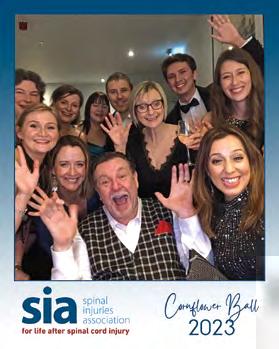
On the night, Tina Lancaster spoke about her experience finding us when her late father David sustained a T4 spinal cord injury.

It is important that our network go away feeling connected to us and empowered to continue supporting our cause. Hearing first hand from the people we support and the impact we have on their lives helps ensure this.
The event supporting partner, Fletcher’s Solicitors, said: “We are extremely proud to sponsor this year’s Cornflower Ball. As trusted legal partner, we are keen to help with fundraising in addition to the legal services we provide.”
These events are incredibly important to ensure we continue raising crucial funds for the ambitious plans we have over the next few years.
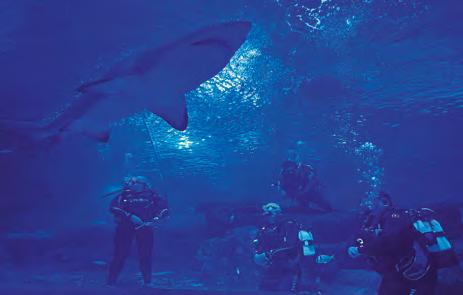
Back in March, 21 brave fundraisers, including five with SCI, came faceto-fin with 10ft sand tiger sharks, nurse sharks and blacktip reef sharks at Blue Planet Aquarium, during our second annual shark dive. Collectively they’ve raised over £13,000! Gem Hubbard (@Wheelsnoheels on Instagram) filmed her experience of taking part, which you can watch here: tinyurl.com/Gemsharkdive
When Chris Searle was diagnosed with low-grade, non-Hodgkin lymphoma, the cancer compressed his spinal cord, resulting in loss of function and mobility from the chest down. The cancer treatment he received was successful, but it was the 17 months of neuro-physiotherapy which enabled him to regain mobility and learn to walk again.
During a physio session, Chris and wife Angela learned about SIA and after getting in touch, staff helped him face his condition while signposting the couple to other support services.
Chris then heard about the running events held at his nearby Goodwood Motor Circuit in Chichester and on Sunday, 12 February, he and Angela completed a 5km walk to raise vital funds for SIA.
Back to its traditional April date for the first time since 2019, this year’s London Marathon was an incredible success for SIA. We had 23 people taking part for us, and together they’ve raised in excess of 37,000! All of our runners have a close connection to SIA –whether that’s the support that they or a loved one have received, or through their work with SCI people – meaning they know how much of a difference the money they’ve raised will make.
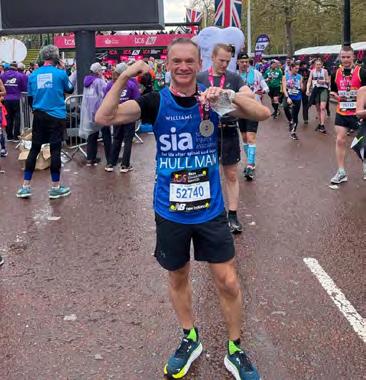
“I will always be grateful for the help SIA gave us,” said Chris. “We know how bleak life can be following spinal trauma, and too many sufferers can’t access the support they need.
“We felt very proud wearing SIA T-shirts! We’ve been thrilled to exceed our original donation target and hope our total will soon reach £2,000!”
If you want to take part in a challenge, SIA has access to places in hundreds of UK events. Visit our website to find an event near you: spinal.co.uk/regionalchallenge-events/

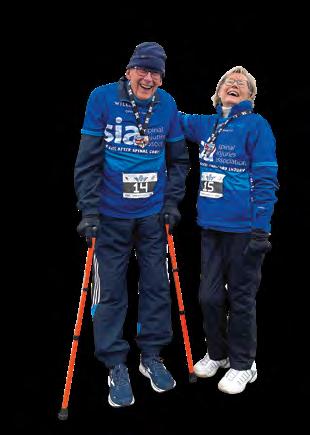

Imagine this …..
You are unwell and trapped in a bed. Despite asking for help, you’ve been told you cannot have assistance to go to the toilet. You’ve been put in a nappy and told to poo in that, and then wait for someone to come and clean you up…..which they’ll do when they are free.
Your skin becomes sore – almost burnt – from your own excrement. The bacteria from your poo can enter your bladder, and you risk becoming more unwell due to a bladder infection, with a high chance of developing septicaemia.
After a while you start to become constipated, your abdomen becomes so bloated that it’s difficult to breathe, and you start to develop a chest infection.
Your family and associates are more than willing to come in and help you go to the toilet, but they are not allowed.
You are terrified because you know your bowel is becoming so full there’s a serious risk of bowel perforation, which could be

REPORTING POOR BOWEL CARE
fatal, but before this your blood pressure will reach such high levels that it’ll kill you anyway. No-one is listening to you.
You lie in the bed with all sense of dignity and control lost… totally helpless.
Just imagine….
Sadly, SCI people don’t need to imagine – and SIA hears of similar versions of this scenario every week.
The bed is in an NHS healthcare setting. We all rely on the brilliant, hardworking, dedicated healthcare professionals for care and support, but for reasons such as local Trust policy, lack of training and knowledge, and misconceptions about what’s allowed and what isn’t, SCI people are consistently being denied essential bowel care.
This injustice and indignity must stop, which is why SIA
has a fully implemented and appropriate bowel care policy in place, driving up standards so that SCI people going into hospital can be certain that their bowel care needs will be fully supported and managed.
Our bowel care campaign, ‘This is #SeriousSh1t’, was officially launched at the ‘All-Party Parliamentary Group for SCI’ meeting on Wednesday 22 March.

The assembled parliamentarians and observers heard a powerful, emotive speech from Carol Adcock (SIA’s SCI specialist nurse lead for the North), and watched a patient perspective
For reporting poor care and a patient safety incident visit: tinyurl.com/NHSreportpoorcare
You can make a complaint direct to the Care Quality Commission (CQC) via: tinyurl.com/makeacomplaintCQC

We also heard an excellent healthcare worker’s perspective from Fiona Le Ber (Queen’s Nurse, Clinical Nurse Specialist for Bladder and Bowel, and Committee Chair of the Bladder & Bowel Forum at the Royal College of Nursing). It was great that Fiona was able to speak for healthcare workers and all the issues they face, whilst recognising the serious issues with the lack of bowel care provision and endorsing the SIA campaign.
More information about the campaign, and Jerry’s powerful video, can be found here: spinal.co.uk/this-is-serioussh1t/
An Emergency Care Plan (ECP) is completed with one of SIA’s SCI nurse specialists and details essential SCI care needs relating to your bowel, bladder, skin, respiration and, where appropriate, autonomic dysreflexia. If you are interested in completing an ECP, more details and a booking form can be found here spinal.co.uk/ecp-booking/

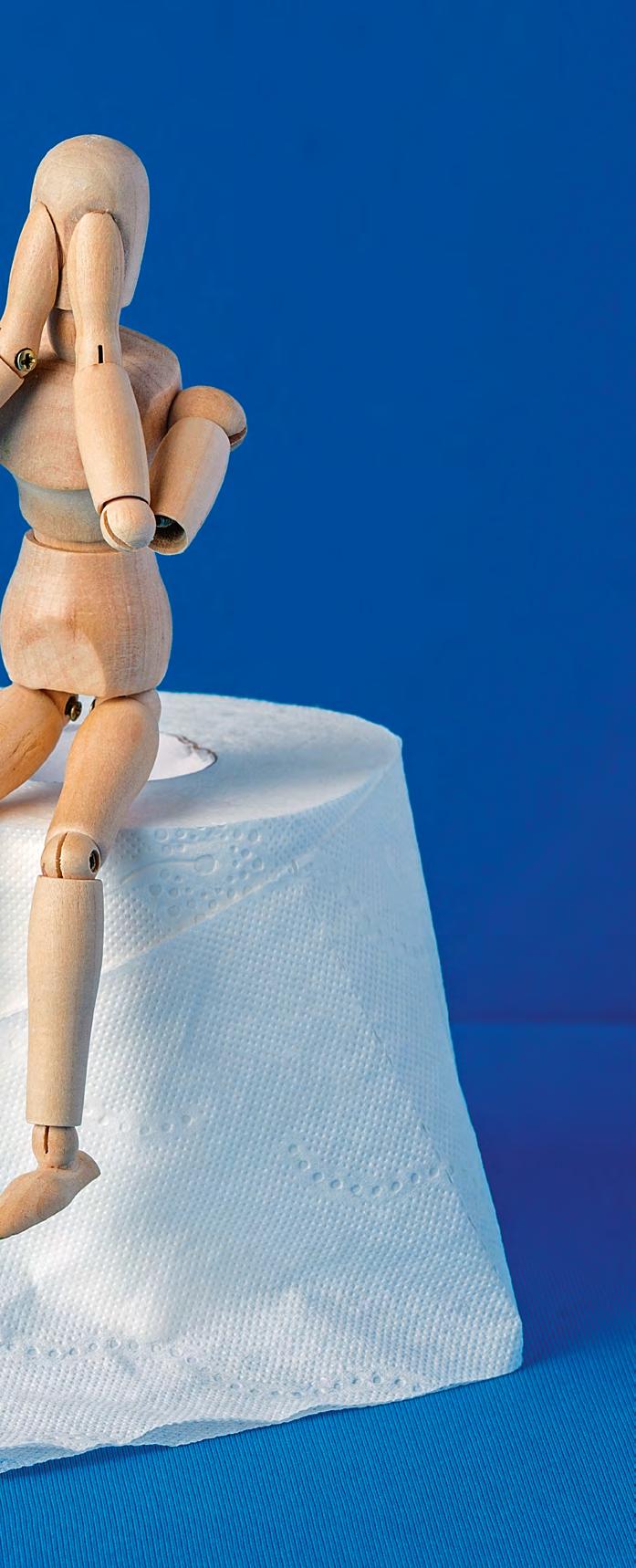

Prior to his injury, Jerry Ward, 64, was a very active man who flew over 30 combat missions as a fighter pilot with the RAF before later going on to fly commercial planes.
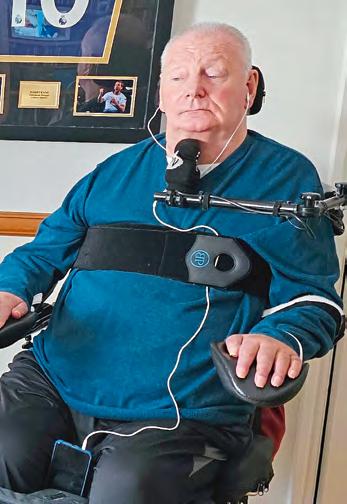
“My experience in the local general hospital was frightening, and it makes you feel very vulnerable. I would like to say this is an isolated incident, but sadly not.
“I was told by the healthcare professional in charge of my ward that there was no one within the Trust that was trained or qualified to undertake bowel care. Had my carers not got in and helped (and then been told retrospectively that they shouldn’t have been there) I would have been left without bowel care.
“When they couldn’t find any way to deal with me, I was just discharged back home. They felt that I was more likely to get looked after and recover at home than if I was in the healthcare setting –which in the big scheme of things is a crock of shit, if you pardon the pun.
“In various situations I have been told that there is nobody within the Trust who has the time or expertise to safely carry out my normal bodily functions, those that I can’t carry out myself.
I was also told I couldn’t bring in my PA.
“It’s only by establishing yourself in some sort of regular regime, using some sort of intervention – and for each of us that is different – that you gain some quality of life. It’s discrimination and neglect if it is not carried out.”
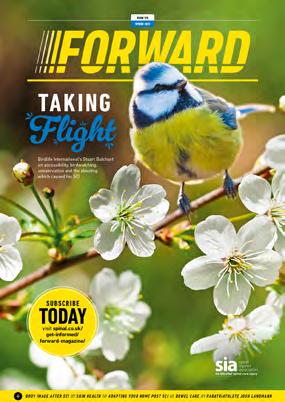

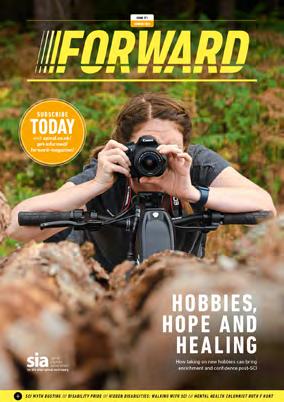
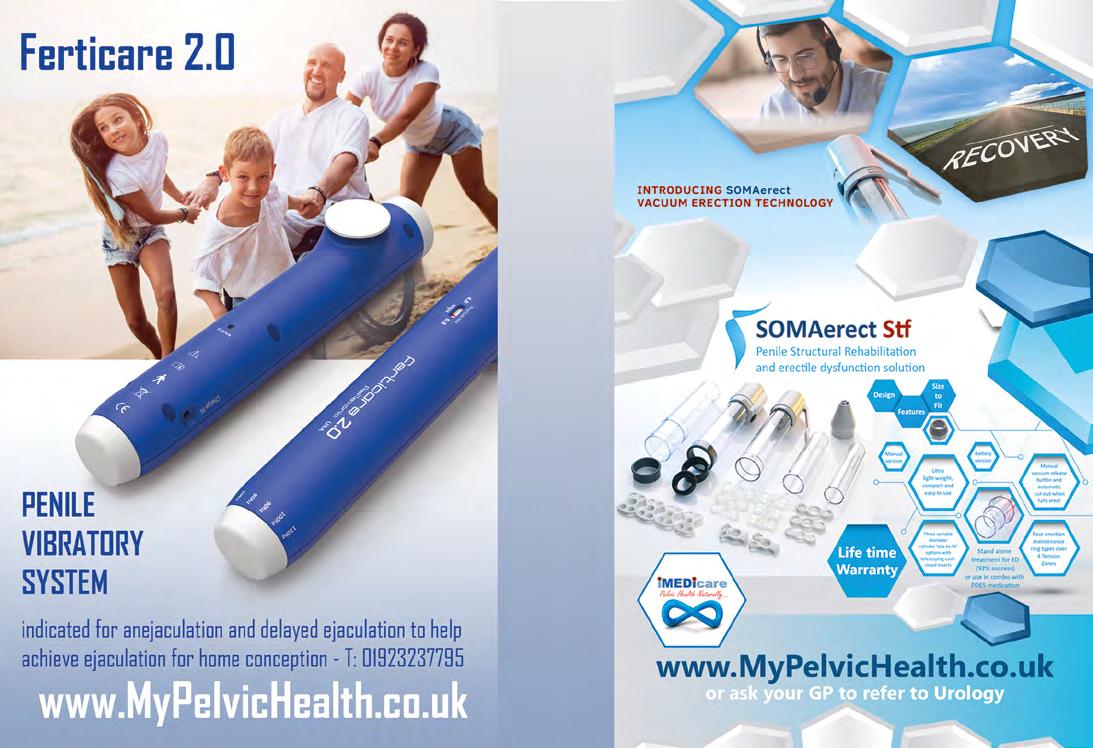
Andy has been a support coordinator for over 10 years. Here, he explains the vital role the team plays and what being part of the support network team means
“SIA’s support network is here for individuals, families, friends, care providers and anyone else who is affected by spinal cord damage at any stage in their lives.
“Our input is often provided from day one, in acute settings such as critical care, but we continue to offer ongoing support throughout rehab and after being discharged to home.
“Through listening and talking with newly injured/diagnosed individuals and their families, friends and care givers, we can offer support to best meet the needs of each individual. When supporting those whose conditions affect life expectancy, we work hard and with sensitivity to take this into consideration and aim to deliver appropriate input at the correct time.
“SIA’s support network is a continuous, tailored cycle of support for all that are affected by spinal cord injury or diagnosis.
“This might be through the vital sharing of lived experiences and knowledge from SIA’s support coordinators or organising specialist
Louise Aveyard, 48, from Scarborough, pictured below with her brother Chris, found the help from SIA’s support network coordinators invaluable when helping Chris rebuild his life after SCI.
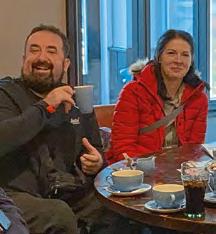
“When we as carers/ family members sit alongside someone who has acquired a spinal cord injury, it can feel like a very daunting place to be.
“My brother Chris had his accident just over three years ago, but once ensconced at

support via SIA’s life-changing services, such as regular volunteer input, SIA clinical, advocacy, counselling and the community groups across the country. These groups are where people, families and carers can meet others in real-life settings at any time during their post-injury/diagnosis life. As a team we also coordinate input from our ever-expanding group of trusted partners, who cover a vast array of important services beneficial to the spinal injured community.
“It’s a privilege to be a part of a person’s journey after SCI. Helping people understand that, although altered, life can go on after the often devastating, life-changing experience they or their family members are going through.
“There is real satisfaction in delivering examples of lived experiences and/or information or services that would have made my or my family’s experience easier.
“Being invited on people’s journeys and seeing the benefits the support network can have on the way, makes this job one of the greatest.”

SIA support coordinator North, East and West Yorkshire, and the North East of England including Northern Cumbria.
Pinderfields rehabilitation unit, we were scooped up by angels. The support was incredible. SIA were quick to introduce themselves and explain about their work.
“What I have learnt along this journey is that support is paramount. Regularly meeting with SIA support groups has been key to navigating the sloped camber of this new and awkward landscape. Being able to sit next to someone who is going through what you are going
through is invaluable. Sharing advice, taking on board tips dispensed by the seasoned pros, showing off our latest finds and having a good laugh…just priceless. Whether you are a carer, a family member or someone who has SCI, you are not alone.
“We are and always will be eternally grateful to SIA’s support network team. See you at the next meeting for more advice and laughs.”
Another service user, Jean, from Malton (pictured right), added: “The SIA community group is a warm, friendly, informative group. I sustained my SCI in 2020 when things were very difficult due to the Covid lockdowns. I was somewhat lost about my
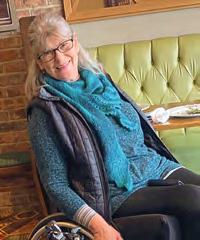
change
I have now learnt so many things from members of the group and from Andy, who is open to any SCI questions, as he is very knowledgeable and has the resource of the SIA behind him. I’m looking forward to our next meeting.”
to him
SIA SUPPORT COORDINATOR:
NORTHWEST (NORTH WALES, CHESHIRE, MERSEYSIDE, GREATER MANCHESTER, LANCASHIRE AND THE SOUTH LAKES)
My day-to-day role is to offer support to anyone across my region affected by a SCI, introducing them to our support network and helping them on their way to living fulfilled lives. Whether it be in a healthcare setting or out in the community and people’s homes. I love the impact I can have on people’s lives, supporting them from a lived experience perspective and showing them that they can still have an amazing life after injury.
I love the community groups we host across the region too. People can get support, advice and information from professionals, and they give people the chance to get out, make friends and socialise with their peers, friends and families.
Hidden talent/fun fact: I have climbed Snowdon in my wheelchair.
We’re excited to announce that as we went to press, we had three new support coordinators starting at SIA. They will be covering South Wales, the East Midlands and the North East of England. We look forward to introducing them to you in the next issue of Forward

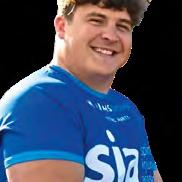


SIA SUPPORT COORDINATOR:
SOUTH WEST – CORNWALL, DEVON, SOMERSET AND DORSET
Day-to-day I offer my support to anyone with a SCI in hospitals and care settings. We offer that support in a wide range of ways from phone calls, video links and face to face. I also give presentations to organisations in my area on the services we offer, raising the profile of SIA and the support it can provide.
We help people realise that there really is life after a spinal cord injury and show
others what can be achieved with the right support. That even though times are tough and there is a hard road ahead, there is light at the end of the tunnel and a life to live. We also support families and friends, who are sometimes forgotten in the struggle.
Hidden talent/fun fact: I create weird art installations within small boxes in my spare time.

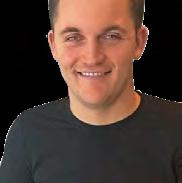
My day-to-day role mostly consists of visits to people in hospitals, rehab centres, or their own homes. What I get the most satisfaction
from is helping people in the acute phase. Right at the beginning when so many thoughts are running through your mind and you’re not sure what to do or what happens next. Talking people through my own experience and what I’ve achieved since my injury seems to really lift people and helps them form some sort of plan going forwards.
Seeing how the community groups have grown is fantastic. Being able to put people in touch and watch them help each other is great to see.
Hidden talent/fun fact: Bowling, I love bowling! I don’t know if it’s quite a talent yet but it’s something I really enjoy.




SIA SUPPORT COORDINATOR: NORTH, EAST AND WEST YORKSHIRE, AND THE NORTH EAST OF ENGLAND, INCLUDING NORTHERN CUMBRIA
See previous page (51) to find out what being a support coordinator means to Andy.


My role is to liaise with anyone affected by SCI and provide ongoing support to assist them in their SCI journey. This could be the injured person or a relative/friend and can include offering practical support with applying for benefits, housing, adaptations, sports and pastimes, returning to work, legal advice and many other aspects.
Support can take place via Zoom calls, in a hospital environment, in nursing homes or the person’s own home, anywhere they need us. I have days when I go home buzzing that I am helping to change someone’s life and days when I go home close to tears. The feedback we receive, and the changes we witness, make it all worthwhile.
Hidden talent/fun fact: I once ran over Whitney Houston’s foot as I was leaving a concert……and she apologised to me.
My role is to support SCI people across the region through hospital and community visits, education and advocating for the interests of everybody affected by spinal injuries.
I love seeing, and being a part of, the progress our service users can make, given the right support, and I love working alongside some of the kindest, most hardworking members of our NHS.
Hidden talent/fun fact: I was Simba from The Lion King in the school play when I was 10 and I still know every word (yes, even the songs).
Alongside tracking further impacts of the cost-of-living crisis, SIA’s campaigns team has joined a coalition aimed at ending carer poverty

Almost 100 organisations, including SIA, have come together to form a new coalition campaigning to lessen the financial hardship experienced by millions of unpaid carers across the UK.

The Carer Poverty Coalition is being led by Carers UK and includes a mixture of charities and local organisations. The aim is to build awareness of carer poverty and the impact of the cost-of-living crisis on unpaid carers and improve the benefits system to better support people providing high amounts of unpaid care. Crucially, the coalition will also look at what carers need to support them to continue with paid work, alongside their caring role, for as long as possible.
Millions of people in the UK are juggling paid work and unpaid care, and each year 1.9 million employees
become unpaid carers. The more intense caring responsibilities become, the less likely the carer will be able to maintain paid employment. And shockingly, one in four unpaid carers has been forced to cut back on food, while almost two-thirds are worried about being able to afford energy bills during the cost-of-living crisis.
Helen Walker of Carers UK said: “We believe carers deserve better. There is a clear moral as well as economic argument for supporting unpaid carers to live on a decent income and for supporting those able to continue with paid work whilst caring, to stay in work. We hope government and policy makers will see this too.”
More information about Carers UK can be found at carersuk.org or by scanning the QR code

Figures released by the Department for Transport (DfT) show that councils in England took legal action against just 698 people for blue badge misuse in the year ending March 2021. The vast majority of prosecutions, 97%, were for people who used someone else’s blue badge.
More than half (54%) of the prosecutions were carried out by just four local authorities. And data also showed that more than two-thirds of councils –110 out of England’s 140 local authorities – hadn’t prosecuted anyone at all during this period for blue badge misuse. People found guilty can be fined up to £1,000.
Edmund King, president of the AA, said: “It is shocking that more than half of blue badge prosecutions come from less than a handful of local authorities, as this indicates that the majority of local authorities are not taking enforcement seriously.”
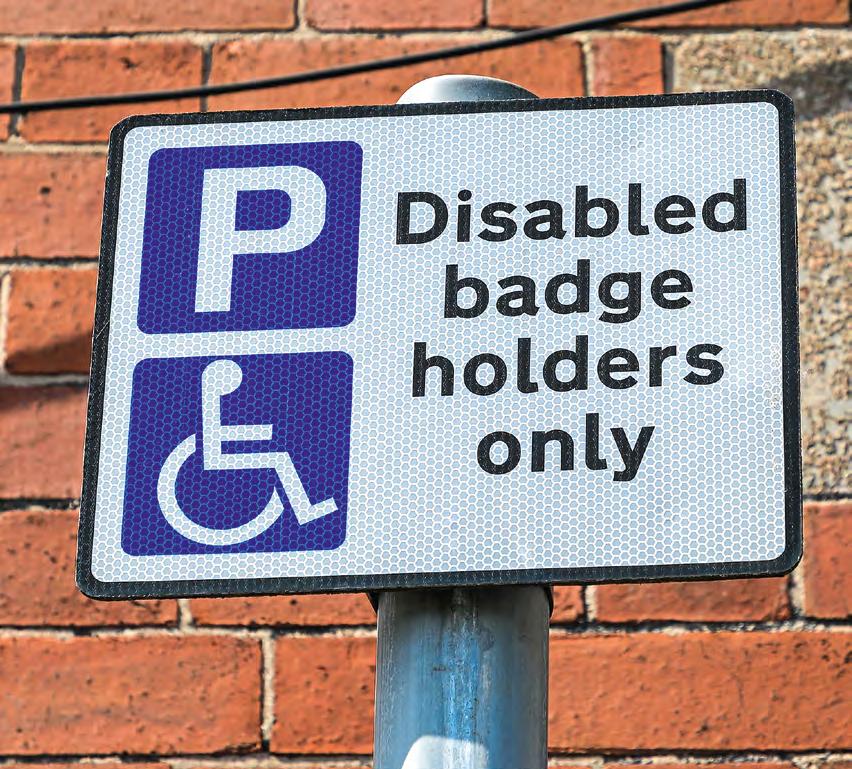
David Renard, transport spokesman for the Local Government Association, said: “Despite limited resources, councils continue to work hard to crack down on this growing crime and to learn from best practice. Before taking matters to court, councils will always consider whether there is sufficient evidence for there to be a reasonable prospect of conviction and will also consider if it is in the public interest.”

The Royal Pharmaceutical Society (RPS) has released the results of a survey showing that the cost of living is having an impact on whether people can afford prescription medicines in England.
One in two pharmacists responding to the survey said they’d seen an increase in patients asking which medicines on their prescription they can ‘do without’ due to affordability issues, and a similar number reported a rise in people not collecting their prescription. In addition, two out of three pharmacists reported an increase in being asked if there was a cheaper, over-the-counter substitute for the medicine they had been prescribed.
FOR MORE INFORMATION
More information about the RPS can be found at rpharms.com or by scanning the QR code.
RPS has long campaigned to remove prescription charges for people with long-term conditions in England, because of the financial barriers to patients receiving the medicines needed to keep them well. By comparison, prescriptions are free for people in Scotland, Wales and Northern Ireland.

Ability left the BBC’s Dragon’s Den after securing a joint offer from three dragons with their Omeo active power chair. SIA’s Hannah Aubrey caught up with Cristian to find out more…
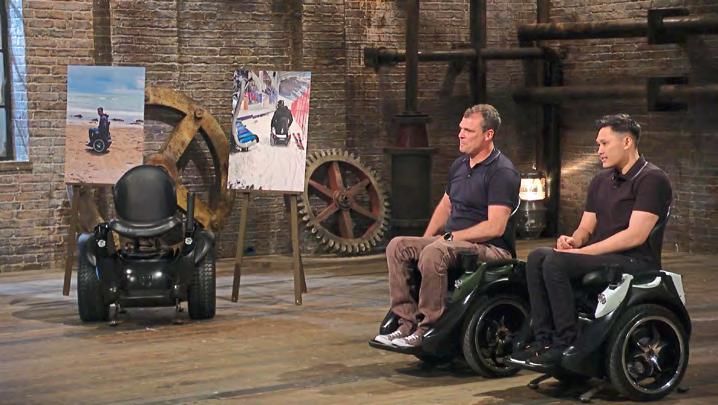
It was one of the most stressful experiences of my life! That’s probably quite obvious to see during our pitch. As it happens, they’re so friendly and supportive that my stress levels were unnecessary.
It started when I saw a video of a prototype concept. I contacted the inventor to figure out the cost and logistics of getting a model. I sold what I could find in my home – mostly redundant disability equipment – and raised the rest with the amazing generosity of family and friends. When I transferred into the chair, it was a little disorientating at first (two wheels after all!) but when I gained some confidence, I put a lead on my dog and took him for a stroll. I was so intoxicated with my new sense of independence that I don’t remember much else that day other than my eyes welling up!
This greatly varies as it is very much dependent on how traumatic the SCI is, as well as the ability and motivation of each individual. The highest-level SCI of our current customers is C6 complete.
Matt was one of my first customers and I was mesmerised with how he approached his spinal cord injury. His level of independence, motivation, love for the Omeo and ‘can-do’ attitude was exactly what was needed to turn what was effectively a side-project, into a business.
Traumatic injury and reduction in ability is always going to be a heavy burden to bear. As someone intimately acquainted with the same level of despair, I would say there are always going to be opportunities to have a really fulfilling quality of life. It may not seem like it now, but it will come, possibly in the strangest shape or size. Don’t lose hope and don’t give up.
The age we live in gives us access to unlimited resources for creating a successful business. Whether your idea is in an already saturated market, or is completely crazy, the most important thing is to try. It may fail, but that’s the best way to learn. My inbox is always open to anyone that might be interested in learning from my own experiences – don’t hesitate to reach out!
LARGE VICTORIAN FAMILY HOME FOR SALE

Lived in by a T7 complete paraplegic for the past 20 years. This home has a through-floor lift, wheelchair-accessible shower room, and large ramps, making this 4/5 bedroom house a perfect family or multigenerational home. Comprising of 3 reception rooms on the ground floor, 1 with a log burner and 1 with an open fireplace, a large study/5th bedroom with its own external access, a generous open hallway with original Minton tile floor, kitchen, utility room and shower room. The first floor boasts 4 bedrooms, a large family bathroom, and 2 of the rooms are linked by a jack-and-jill wheelchairaccessible shower room. The property has good size mature gardens and a double garage with driveway parking for at least 5 cars. Situated in St Georges, one of the original parishes in Telford with excellent road and rail links, 2 miles from the M54 and 1.5 miles from Telford central rail station. Contact Pam on 07958 728 461 for further information.
THERATRAINER CYCLING EXERCISE MACHINE
For stroke, MS, Paralysis survivors. Can be used passively (motor operated) Motor assisted or Active movement (using own muscle) - helps maintain strength, range of movement, stimulates body functions, improves circulation etc… Cost £3000 will accept £300. Buyers must collect items in person from Hemsworth, West Yorkshire as delivery not possible contact seller Paul Cox on 01977 617050
GET INTO DISABILITY GOLF!
Golf is a very inclusive sport for disabled people and it is easy to integrate with non-disabled players. It’s also a great way to meet new people as well as getting out into the countryside for some fresh air and exercise.
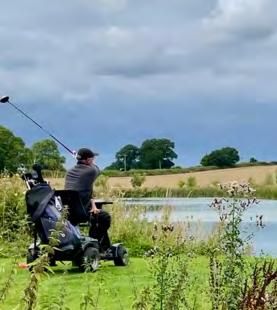
The Handigolf Foundation is a registered charity that rents out specially adapted buggies for wheelchair users to play golf. Membership costs just £220 a year which includes buggy rental and public liability insurance. If you would like to give it a try, we can arrange a free taster session at a driving range in your area. For more information visit www.handigolf.net or find us on Facebook or contact Greg Jackson on 0791 364 2066.
LEVO STAND-UP CHAIR
Manual wheelchair that also functions as a chair that electrically lifts the user into a standing position, this is beneficial for therapeutic reasons to aid good posture, blood pressure and good kidney and liver function. Supplied with battery and all parts including knee and chest straps. Good condition paid £3000 will accept £300. West Yorkshire as delivery not possible contact seller Paul Cox on 01977 617050
VEHICLE HIRE, NEW ZEALAND
We have the largest mobility rental fleet in NZ, and 24/7 nationwide roadside assistance. Our personalised service means you get the perfect vehicle for your needs, and we can also offer advice on accessible accommodation and activities. We’ll get you on the road for the trip of a lifetime. Visit www.freedommobility.co.nz
Ever wanted to do a safari?
Didn’t think it’d be possible for a disabled traveller?
We offer bespoke safaris and tours in South Africa and Botswana


TODSWORTHY FARM HOLIDAYS, CORNWALL Luxury and spacious barn conversions on a family run working farm. Located in an area of outstanding natural beauty in the picturesque Tamar Valley. Owned by a C6/7 tetra, both self-catering cottages are superbly adapted for wheelchair users and their families. Both cottages sleep 6 and have a level access bedroom with a spacious ensuite wet room. Shower chair, hoist and profiling bed can be provided. Both cottages are pet and family friendly. Perfect location for touring Devon and Cornwall. Open all year. Tel 01822 834 744
www.todsworthyfarmholidays.co.uk
TREWORGANS FARM HOLIDAYS MID CORNWALL
Specially converted detached cottages (sleep 4 & 6) that are fully wheelchair accessible. Mobility aids include 4-section electric profiling beds, air mattresses, ceiling and portable hoists, shower chairs and rise/recline chairs as well as many other items. All bedrooms have en-suite facilities and each accessible bedroom has a level access wet room. Adapted kitchens. Accessible decked patio areas. Ample parking areas. Care available from local agency. Exposed beams, wood burner. Ideal location for exploring the whole county. Tel: 01726 883240 or 07762 173860. For a video tour visit www.treworgans.co.uk.
CLOBER FARM, MILNGAVIE, GLASGOW
Fully accessible self-catering apartment & landscaped garden. Clober Farm is situated 45 mins from Loch Lomond & the Trossachs National Park and only 7 miles from Glasgow. Master bedroom with Liko 200 ceiling tracking hoist, height adjustable profiling bed and Invacare pressure relief mattress. Ensuite wet room. Sleeps 6. Pets welcome. Open all year. For more information and to book: t: 0141 427 7686, e: info@sisonline.org, w: www.cloberfarm.co.uk
GLAN Y GORS COTTAGE, SNOWDONIA
Fully accessible, self-catering cottage in beautiful rural location, with open views of Snowdon and surrounding mountains. 4 bedrooms, 3 bathrooms, large kitchen/diner, lounge with log fire. Ground floor bedroom and shower room. Hospital bed and mobile hoist available. Sleeps 10 (12 with sofa bed), reduced rates for smaller groups. See website for details: www.wilsons-holidays.co.uk, info@wilsons-holidays.co.uk, 01286 870 261.
COLLIOURE, SOUTH OF FRANCE
Ground-floor, two-bedroom apartment, sleeps four/six. Level access throughout. Designed specifically for people with a spinal cord injury. Ensuite bathrooms, pressure mattresses, AC, full heating. Quiet but central location. Garden, offstreet parking. Within 400m easy push of a lovely town, market, shops and beach. Separate upstairs apartment available for family or friends. www.origincare.com/lorigin-home/ or call Francois on – 0033 607 51 59 12.
LANGUEDOC, SOUTH OF FRANCE
A spacious, open-plan villa with an accessible swimming pool that’s designed and owned by a T3 para. Lift to first floor master bedroom with balcony and ensuite; hydrospa bath and a ‘loo with a view’. Downstairs; two bedrooms and a sofa bed, so can sleep 8 max; wheel-in wet room; fully accessible kitchen and BBQ area. Large garage and covered terrace, with great views of the High Languedoc National Park. Easy 5-minute push across the river Orb to the boulangeries, bars and restaurants in a lively, family-friendly village. www.frenchliberty.co.uk Contact Chris Dabbs on: 01604 495 435 or 07785 338 497.Email: frenchlibertyuk@gmail.com
PORTUGAL
ALGARVE
Your home from home in the sun including accessible transport and airport transfers. Owned by C4 tetraplegic, 20-minutes from Faro airport with stunning views and privacy. Three twin bedrooms, two with wheel-in showers. Pool with hoist heated to 25ºC. Inclusive accessible vans & airport transfers, electric up and down bed, electric indoor hoist, shower commode chairs etc. Not to be missed. See full details on our comprehensive website. Tel: 00351 289 414 687, Email sia@ouricodomar.com Web: www.ouricodomar.com
ALMANCIL, ALGARVE
Outstanding, fully-accessible, luxury, private villa set in beautiful countryside. Three bedrooms, all ensuite with wheel-in showers. Private pool with hoist. Comfortable lounge/ dining rooms and well-equipped kitchen. All you could wish for in a holiday home and so much more! To contact us call 01530 833 690 or www.villas-algarve.co.uk
COSTA BLANCA, TORREVIEJA
Established, detached family villa with lovely gardens in sunny Torrevieja on the Spanish Costa Blanca. Huge wheel-in swimming pool. Custom built for C5 owner. Close to beach and all amenities. Airport 20-mins. Converted vehicle also available to hire.
For details 01262 676 015 www.disabledvilla.com
SIA MERSEYSIDE & NORTHWEST REGION
The popular Merseyside SIA support group meets on the first Wednesday of each month from 2-5pm in the Brain Charity building, Norton Street, Liverpool L3 8LR. The meeting is open to anyone in the North West area, and we usually have a dozen or so attendees. We have regular guest speakers and social events etc. A free lunch is available from 1pm. Our main meeting is now broadcast simultaneously online, together with an online only catch-up meeting on the third Wednesday of each month. Come and join us for some friendly chat and get involved with some of our numerous ongoing and interesting projects and events. For more details visit www.siamerseyside.org or call Stephen Cronin on 07712 538 197.
AGEING WITH CONFIDENCE
Are you feeling overwhelmed with day-to-day challenges of living with a spinal cord injury as you age? I am an ageing-well consultant who provides advice and tailored plans to prepare for and manage ageing with a disability or long term condition. For a free 15-minute consultation, visit www.age-confident.com or call Joy Sinclair on 07786 615 078.
JO-ANNE’S PERSONAL ASSISTANCE SERVICE – COVID-19 EMERGENCY COVER AVAILABLE
Taking bookings through to winter 2023. If you require a personal assistant at this time, please call JPAS on 07500 703 004. Email: jojpas@gmail.com I am happy to travel to any location within the UK.
Member rates
50p per word, minimum charge of £20 for any one advert.
Non-members
80p per word, minimum charge of £25 for any one advert.
VAT will be added to the cost. Email your advertisement to siaforward@media-shed.co.uk
The closing date for contributions to the AUTUMN issue is 20 July.
cannot take responsibility for any inaccuracies or omissions and purchases/bookings made are entirely at your own risk. If you have any comments, please email sia@spinal.co.uk
SIA strongly recommends that before committing to an advertised product, service or accommodation in this section, you first confirm all aspects of the advertisement and your required needs directly with the advertiser. It is advisable to obtain written confirmation that any facilities or special needs that you have can be met by them, ahead of making a booking/agreeing to a purchase. SIA
• Available in 9 sizes, from 18mm-35mm (Ø)
• Shorter length – 75mm

• Stronger adhesive
• Buffer/comfort zone to prevent backflow and sheaths blowing off
• Available in 11 sizes, from 18mm-40mm (Ø)
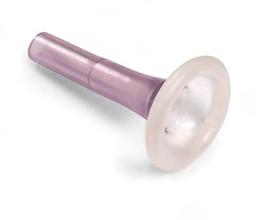
• Longer length – 130mm





















• Large buffer/comfort zone to prevent backflow and sheaths blowing off
• Latex-FREE
• Customise/remove excess length (scissors provided)
• Perfect fit/size for all
• Latex-FREE 9 sizes 11 sizes
• Specifically designed for wheelchair users
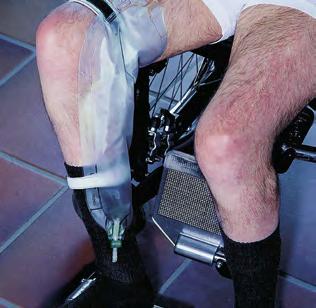
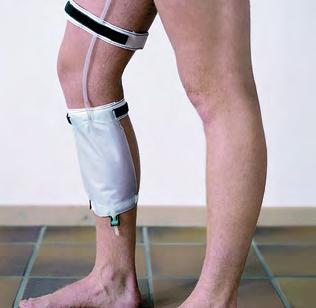
• 700ml and 1300ml sizes
• Shaped to the contours of the bended knee
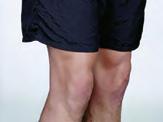


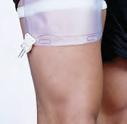

• Traditionally shaped leg bag
• 600ml and 1000ml sizes
• 7cm shorter in length than many 750ml bags – no unsightly taps dangling
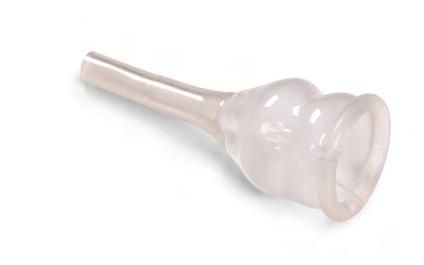
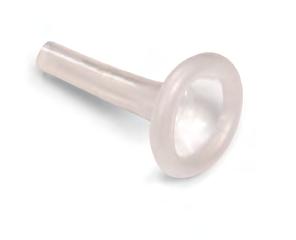
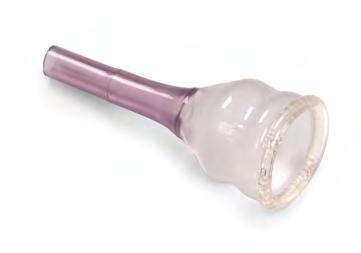
• Ideal for sun, sports, and even some short clothing
• 500ml capacity
• Dress as YOU want, not to cover the leg bag
